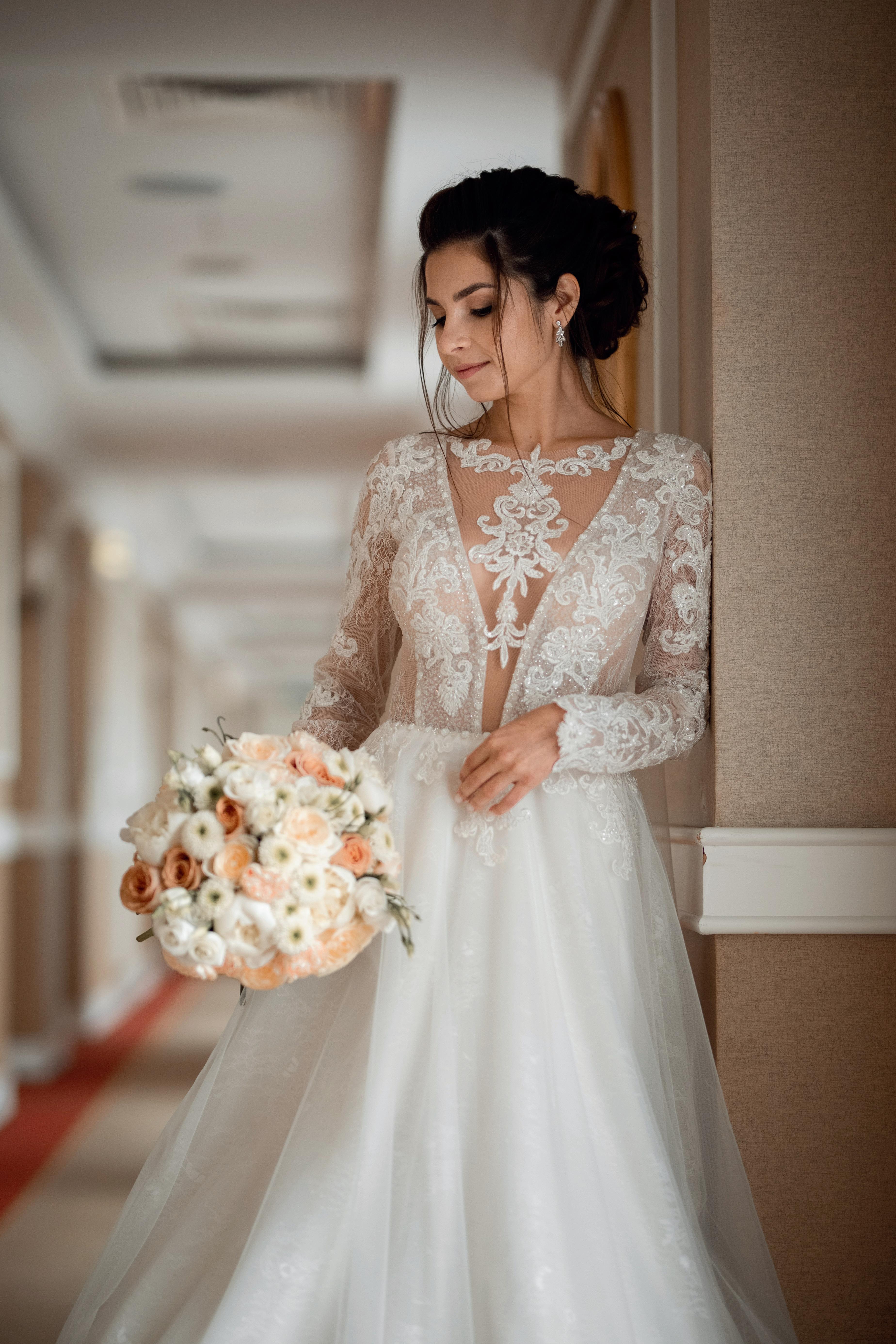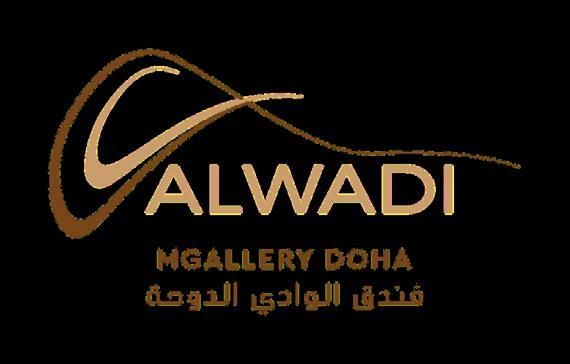Events and Functions



Rana Maalouf
T +974 4492 1519 M +974 6620 7285 For inquiries and reservations,
rana.maalouf@westin.com





















Rana Maalouf
T +974 4492 1519 M +974 6620 7285 For inquiries and reservations,
rana.maalouf@westin.com

















Qatar is the perfect place for dedicated foodlovers, where you can linger over a five-star meal or pop into a simple roadside eatery for a snack. Wherever your tastes fall on the gastronomic spectrum, you’re sure to find something to enjoy.
And this is also true for your special event, whether this be a formal business function, a birthday get-together, or inviting friends and family to help you celebrate your wedding.
Location and atmosphere always add that extra touch to any dining experience and Qatar offers an exciting range of venues. Many of the hotels have dedicated function rooms, banqueting halls or private dining areas in their restaurants. As well as these indoor venues, some hotels offer open-air spaces, allowing for guests to enjoy themselves while overlooking the Arabian Gulf or beautiful landscaping.
Don’t forget that you can also have your gatherings fully catered in the comfort of your own home! Sit back and relax, as the outside catering team will provide all the necessary food and beverages, tables, chairs, chinaware, stemware, audiovisual equipment, and anything else you require to make your event just the very best.
See our list of preferred hotels for details about guest capacities, cuisines on offer, equipment availability, and much more.
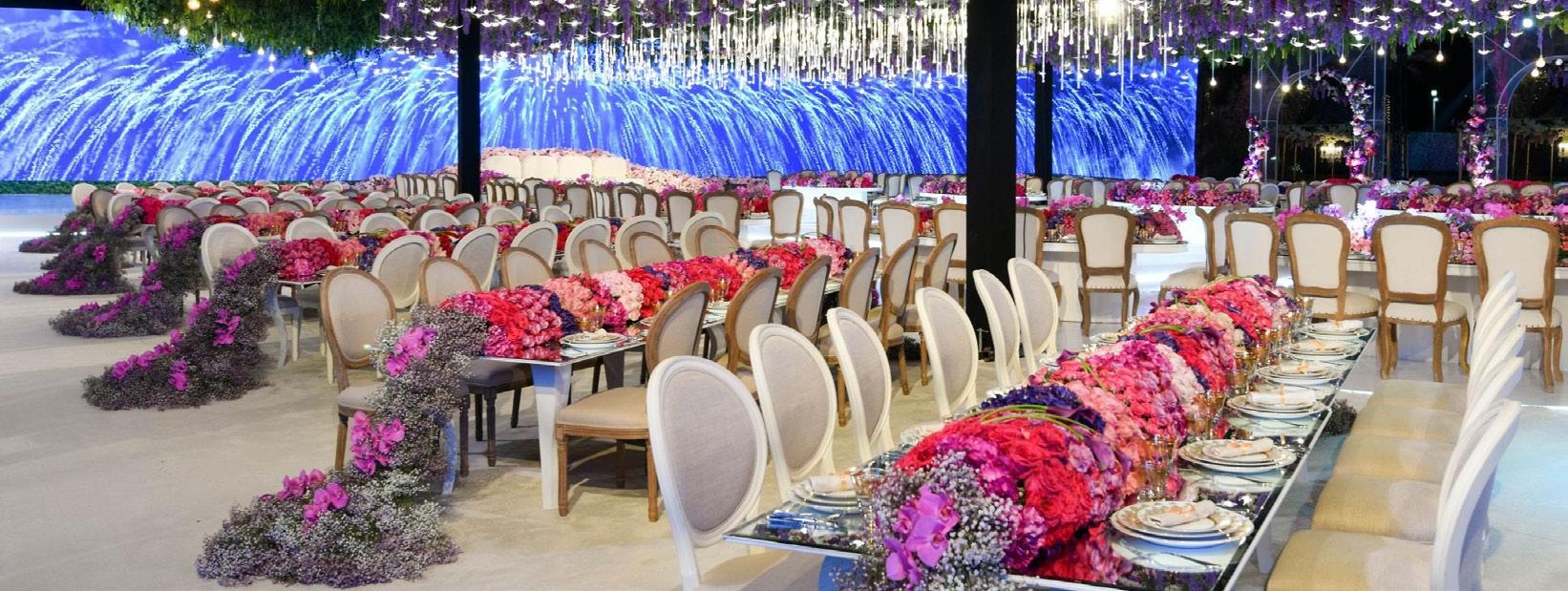
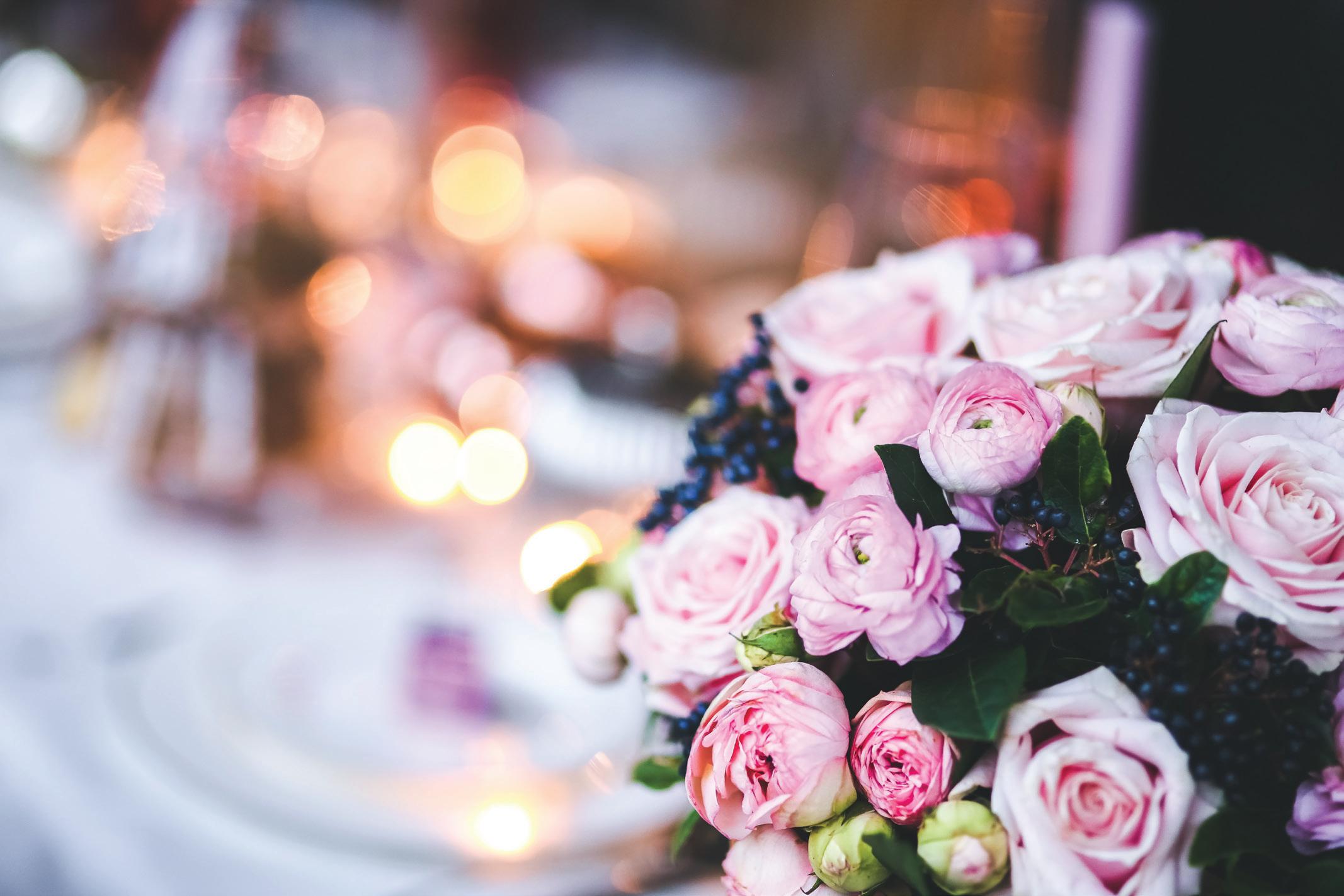

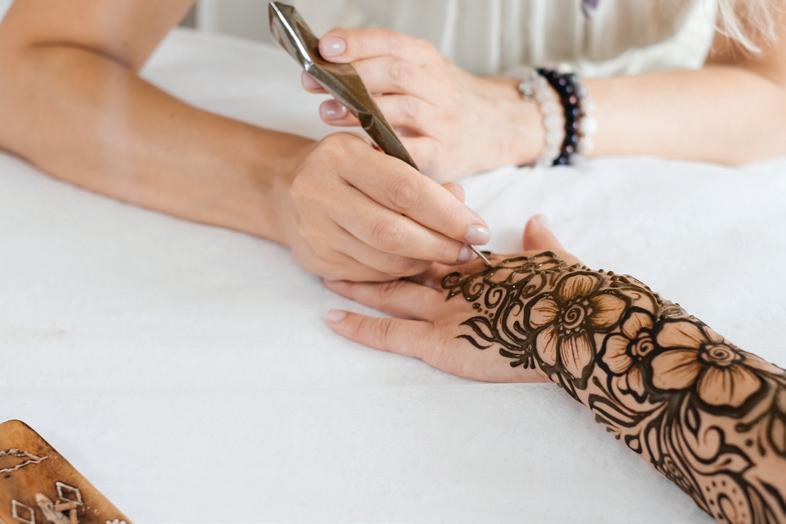
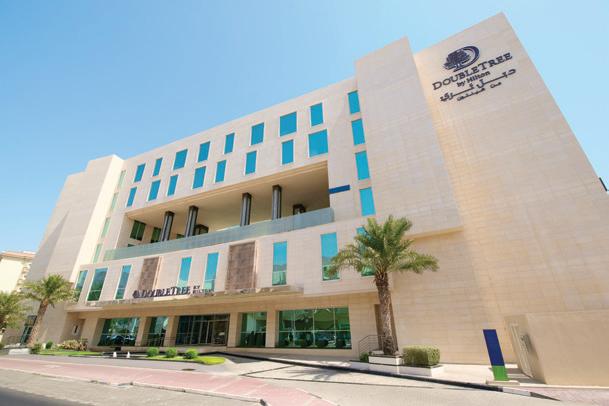
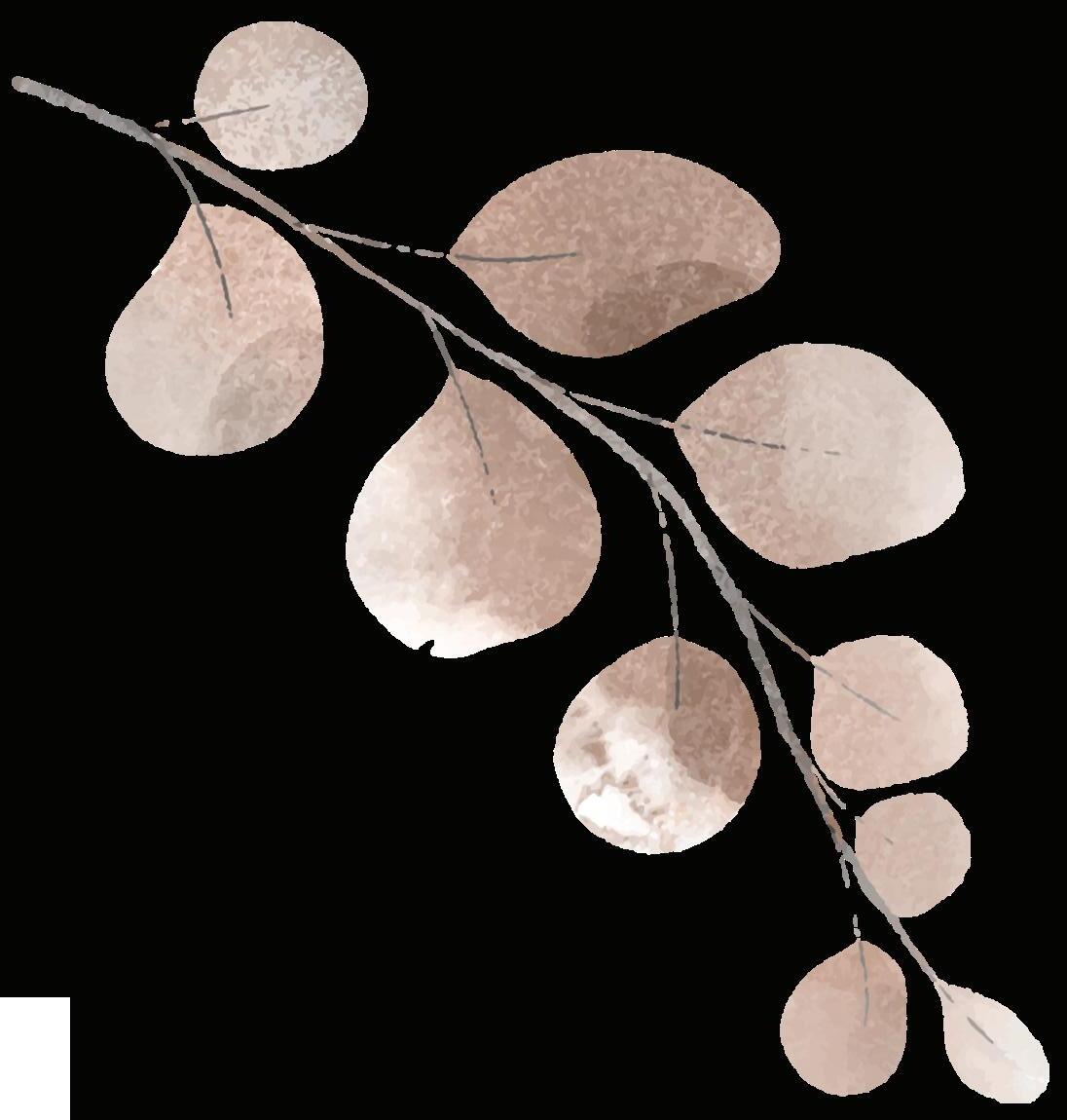
NOTES:
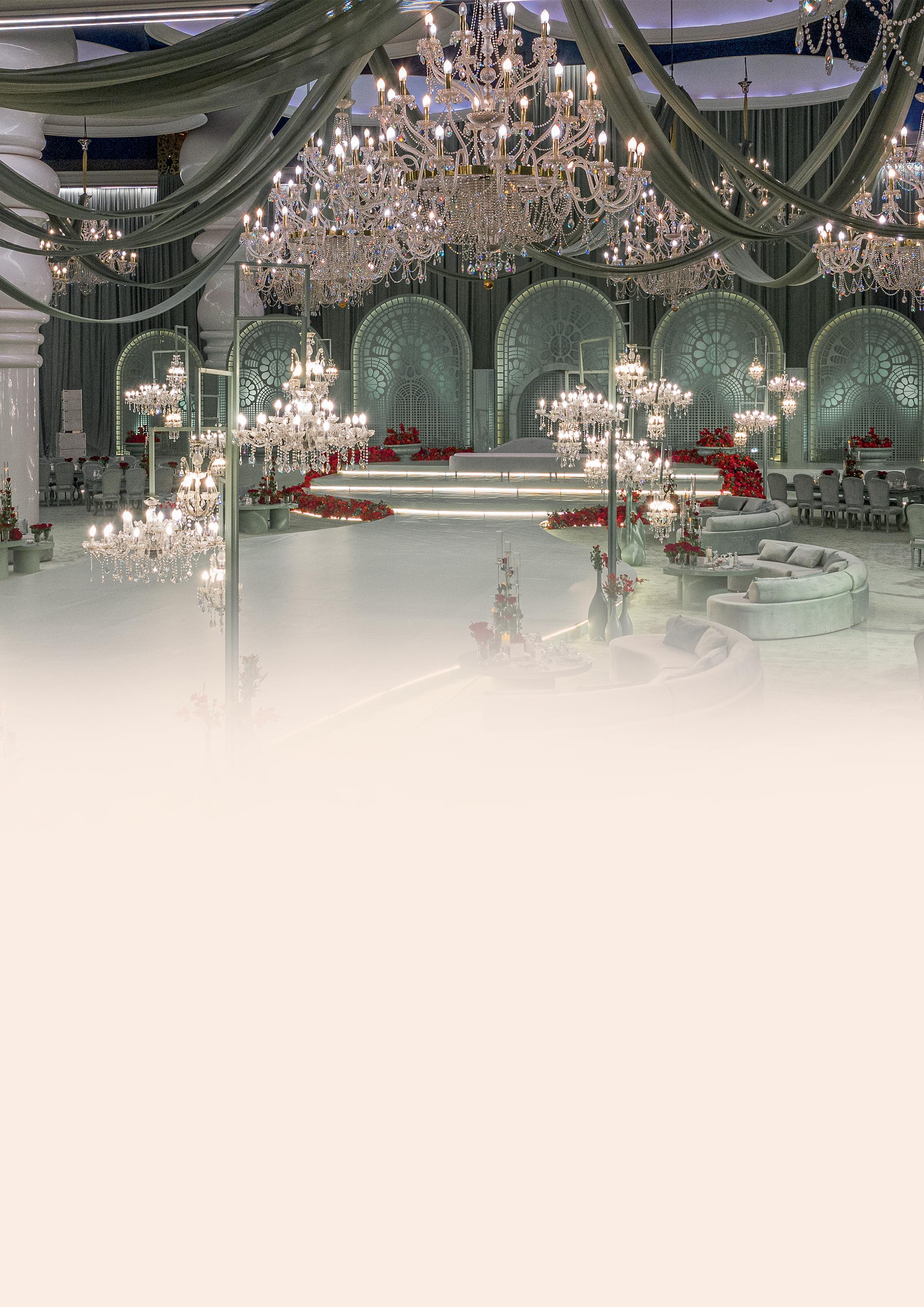
JUNE, JULY AND AUGUST 2024
Plan your dream wedding at Mondrian Doha. With its elegant ambiance and impeccable service, your special day will be nothing short of magical
STARTING FROM QAR 380 | pp
INCLUDING:
• Valet parking - Abaya services
• Customized set menu (+beverages)
• Bridal Suite (includes a private makeup room and sauna/steam room)
• Butler service (private assistant)
• Deluxe loft suite for the couple (inclusive of breakfast, dinner, and customized welcome amenities)
• Extra standard room for the family
*Minimum guest requirement applies
*Subject to terms and conditions
For reservations please call : 4045 5555
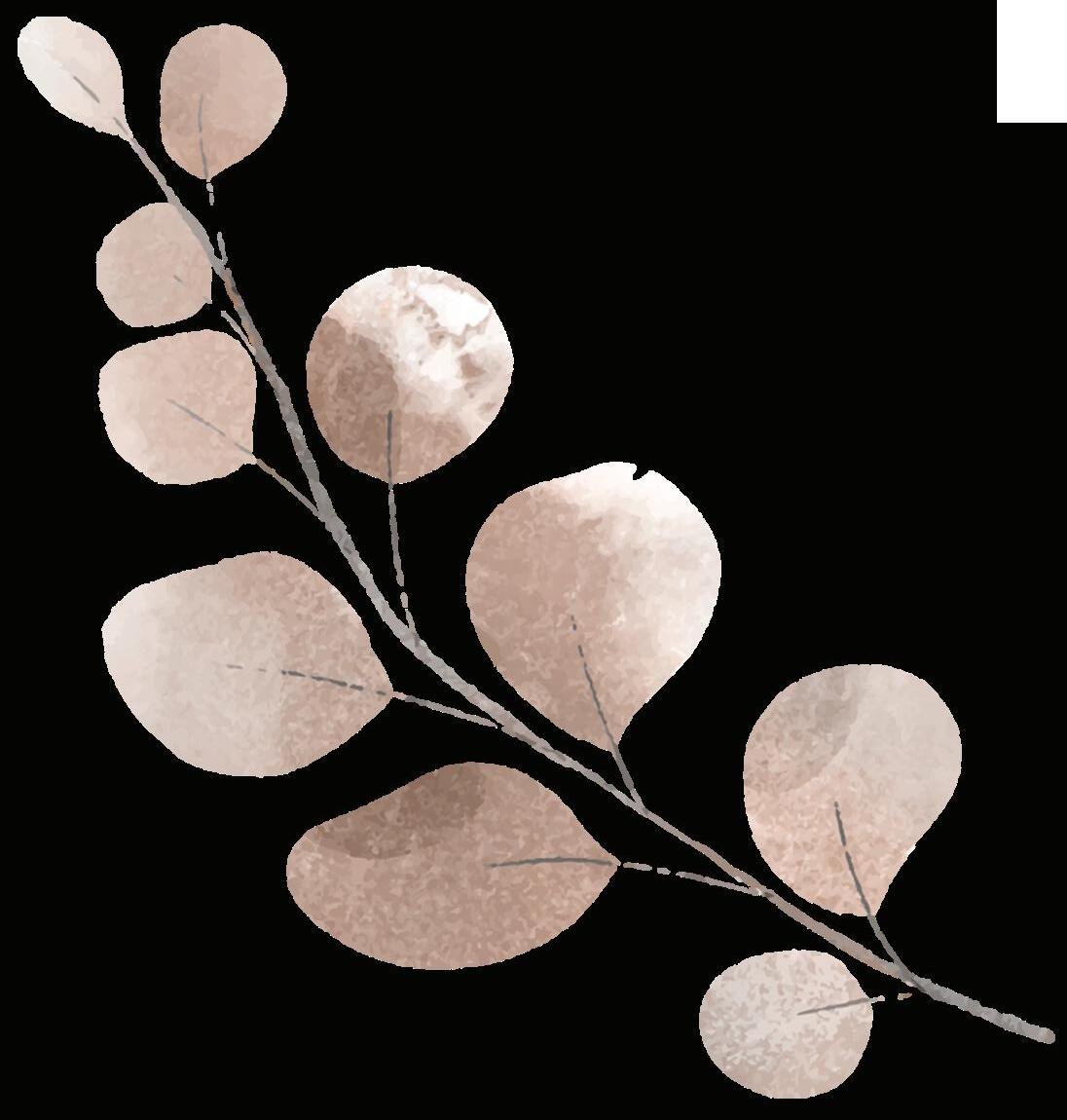
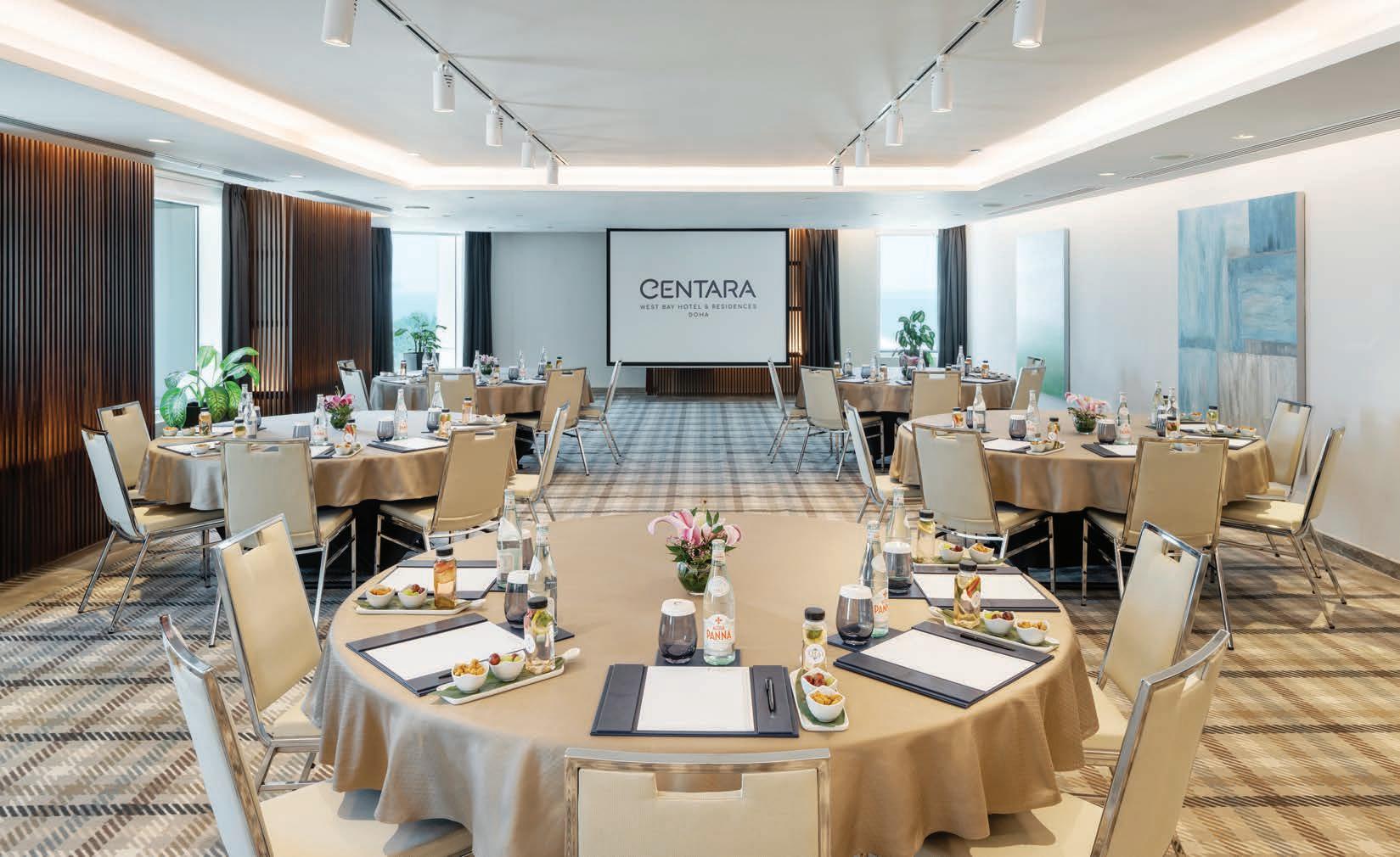
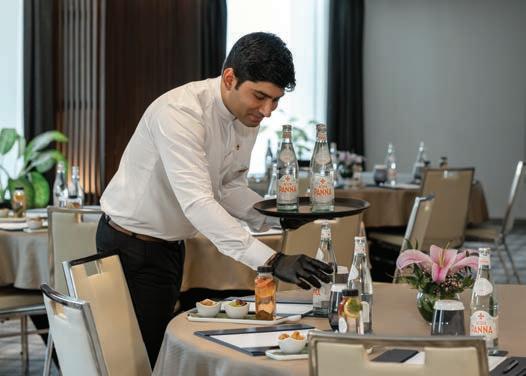
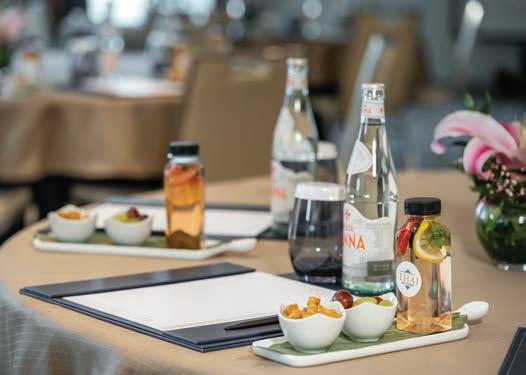
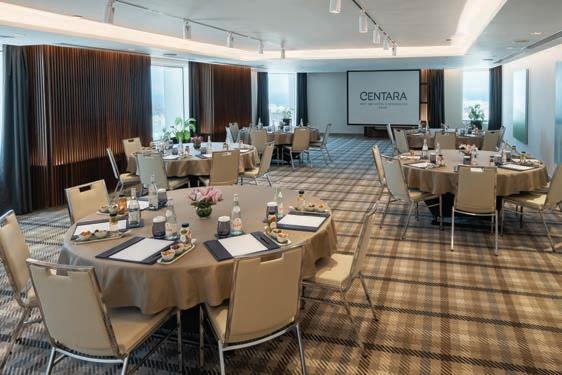
Your customised event venue in the heart of West Bay
The best Kid’s birthday parties, Karaoke or Movie Nights, to intimate, invitation-only meetings to vibrant wedding cerebrations, the Hotel meeting venue spans over 255 square metres, with natural daylight with views of West Bay is ready to host your memorable event. Experience culinary offerings from Dalchini and Thai Kitchen Chefs in West Bay, at your office or home.
For bookings and more details, please call 4009 5510 or email cwq@chr.co.th

Whether you’ve daydreamed about your wedding since childhood or have no idea where to begin, we’re here to craft the experience for you. There is no secret formula. For us, it’s about listening to you. AND MORE.
For more information, please call (974) 4429 5015 | WhatsApp (974) 6642 6837 or email: jwebc.doha@marriott.com
Abesq Doha Hotel & Residences
Adagio Doha
3333 ihg.com/abesqdoha
5555 all.accor.com
Aleph Doha Residences – Curio Collection by Hilton 4004 7400 alephdoharesidences.curiocollection.com
Al Najada Doha Hotel
DoubleTree by Hilton Hotel Doha – Al Sadd
Dusit Doha Hotel
Dusit Hotel & Suites - Doha
Fairmont Doha
Four Seasons Hotel Doha
4444 tivolihotels.com/en/al-najada-tivoli
7400 dohaalsadd.doubletreebyhilton.com
4316 dusit.com
4316 dusit.com
& Villas
6666 salwabeachresort.qa Hyatt Regency Oryx Doha
1234 hyattregencyoryxdoha.com Ibis Doha
5555 all.accor.com InterContinental Doha The City
8888 dohawestbay.intercontinental.com JW Marriott Marquis City Center Doha
5000 marriott.com
Cigale Hotel, Managed by Accor
8888 lacigalehotel.com Le Méridien City Center, Doha
Oriental, Doha
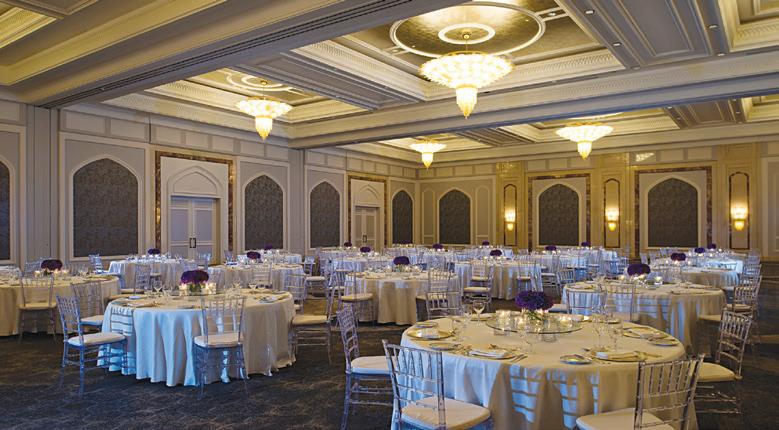
8888 mandarinoriental.com/doha
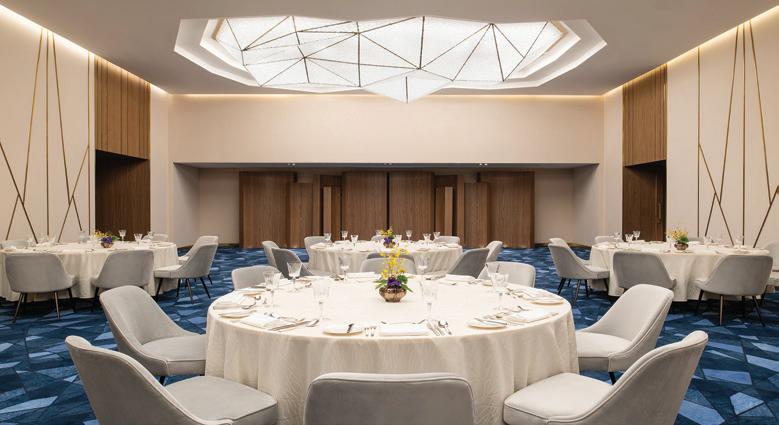
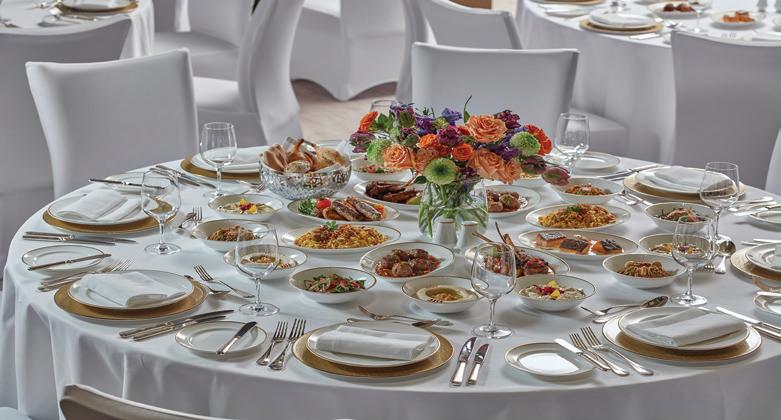
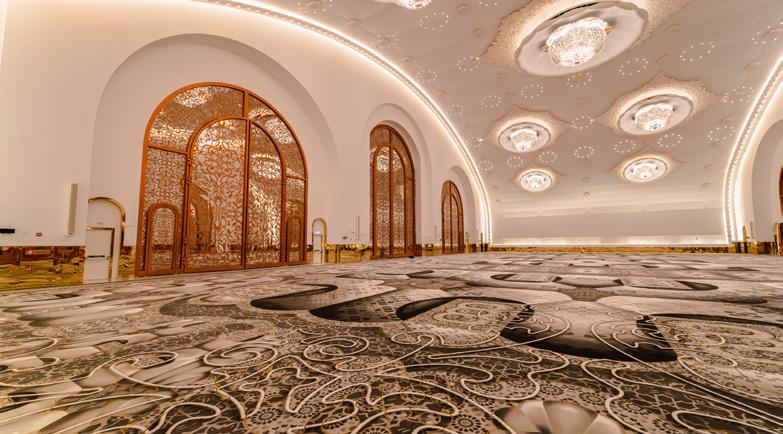
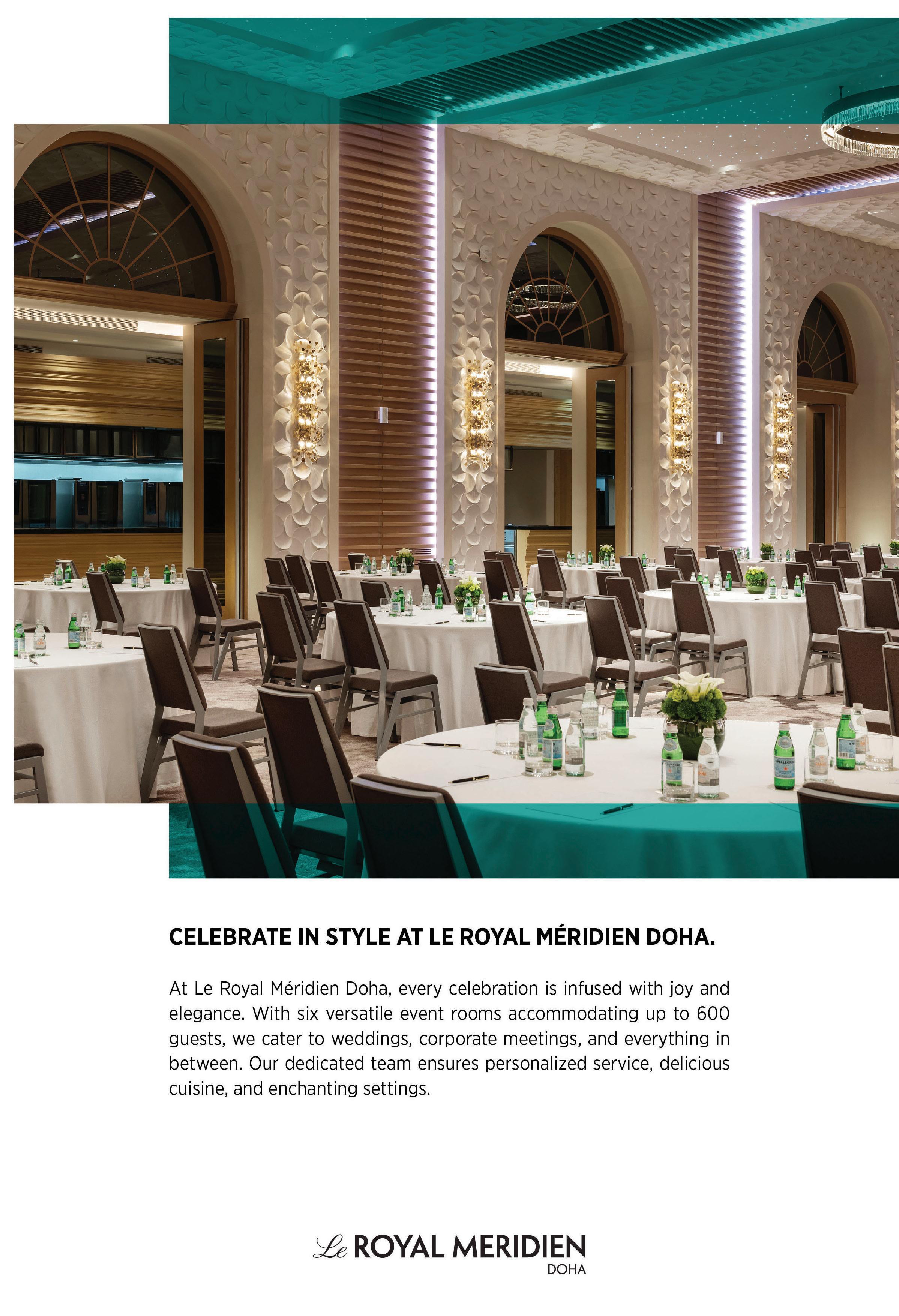
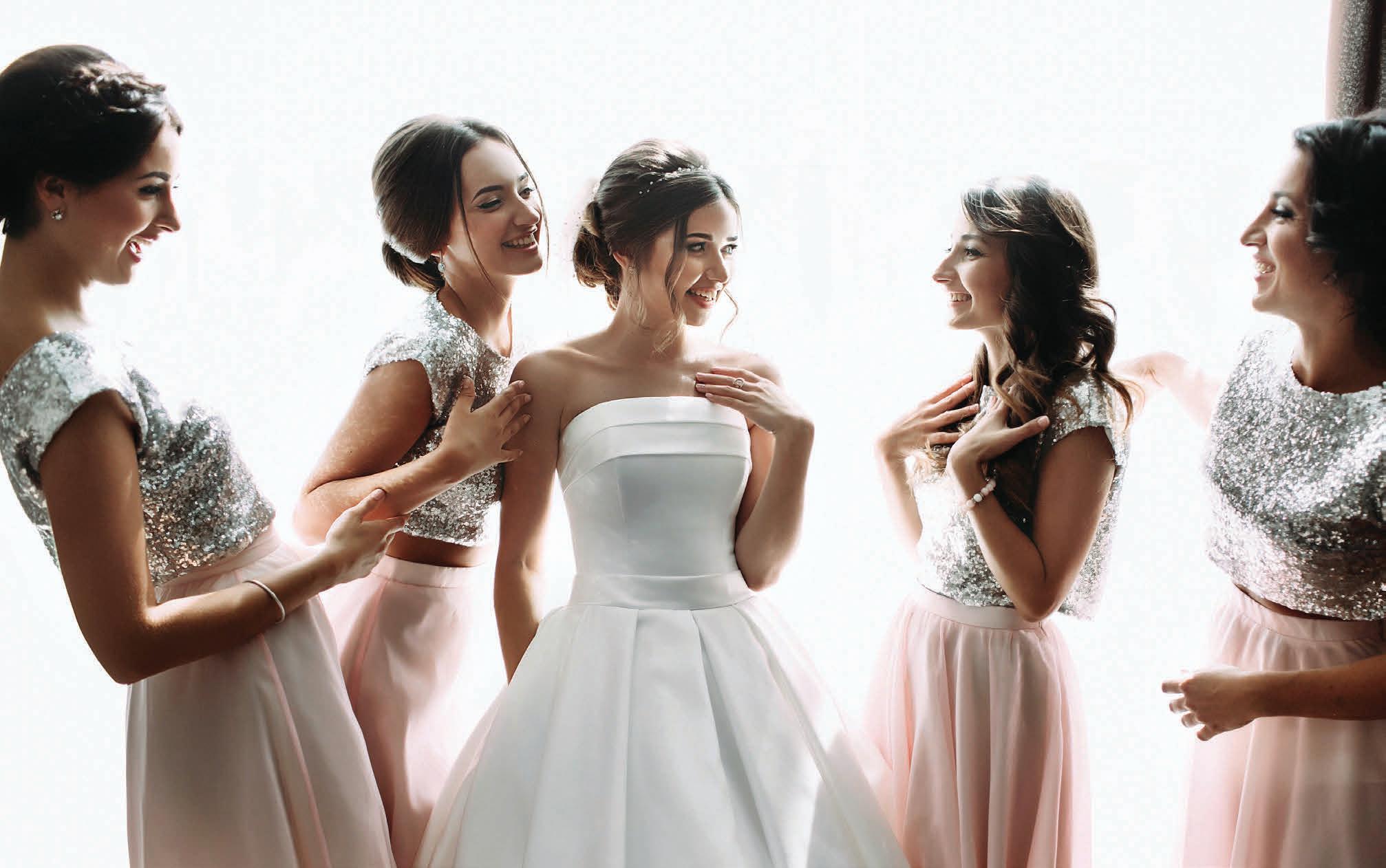
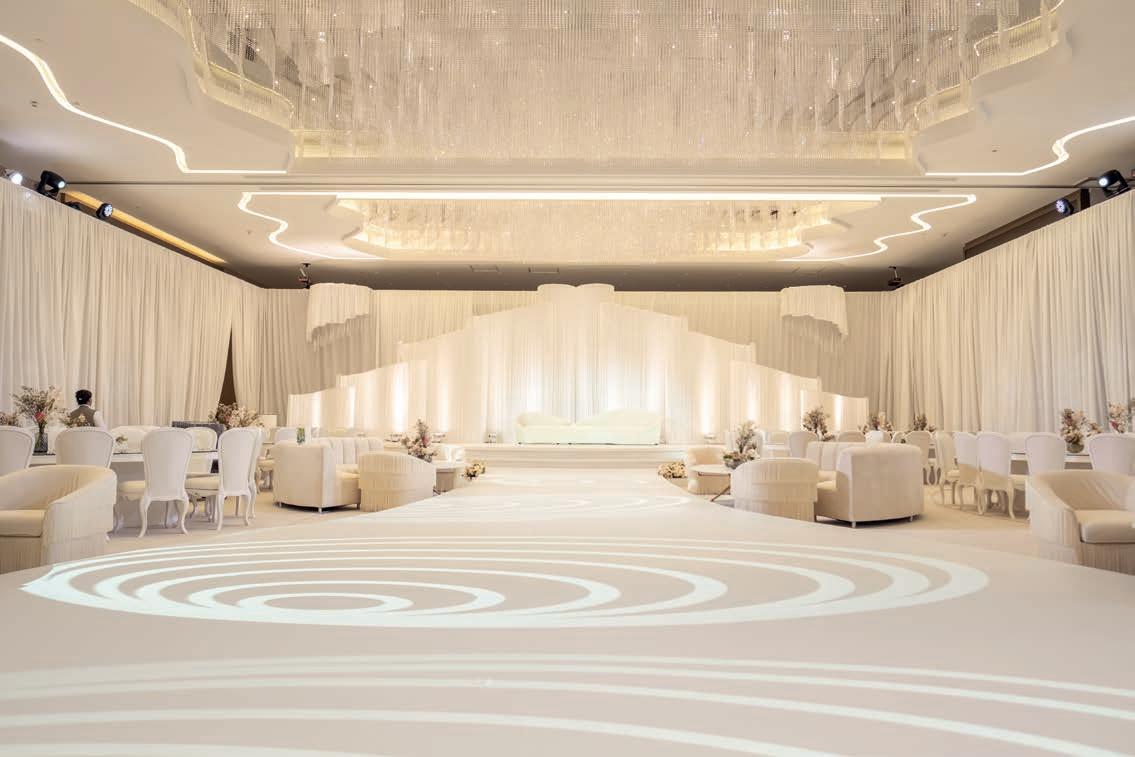
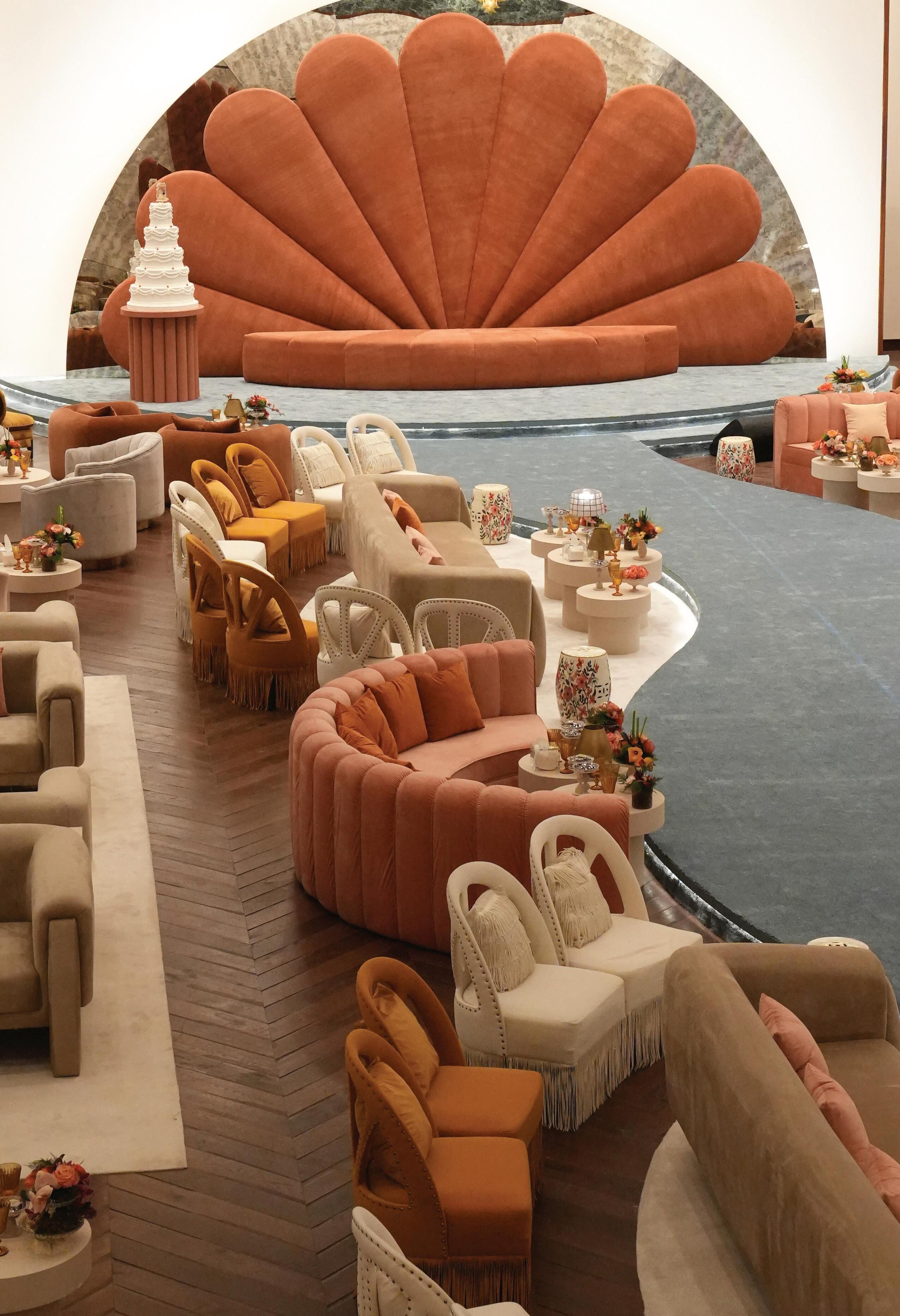
Marriott Marquis City Center Doha Hotel 4419 5015 marriott.com
Marsa Malaz Kempinski, The Pearl – Doha 4035 5555 kempinski.com/marsamalaz
Mondrian Doha 4045 5555 mondriandoha.com
Park Hyatt Doha 4009 1234 parkhyattdoha.com
Pullman Doha West Bay 4009 4000 pullman-doha-westbay.com
Qabila Westbay Hotel 3100 6466 qabilawestbayhotel.com
Radisson Blu Hotel, Doha 4428 1428 radissonblu.com/hotel-doha
Raffles Doha 4030 7100 raffles.com/doha
Shaza Doha 4470 9999 shazahotels.com
Souq Waqif Boutique Hotels 4433 6661 tivolihotels.com/en/souq-waqif-doha
Al Bidda, Al Jasra, Al Jomrok, Al Mirqab, Al Najada, Arumaila, Bismillah, Musheireb, Najd
Steigenberger Hotel Doha 4020 1666 steigenberger.com
The Chedi Katara Hotel & Resort 4144 7777 chedikatara.com
The Ned Doha 4406 1111 thened.com/doha
The Ritz-Carlton, Doha 4484 8000 ritzcarlton.com/doha
The Westin Doha Hotel & Spa 4492 1555 westindoha.com
W Doha Hotel & Residences 4453 5000 wdoha.com
Waldorf Astoria West Bay Doha 4008 9000 hilton.com
Waldorf Astoria Lusail, Doha 4456 5656 waldorfastorialusaildoha.com
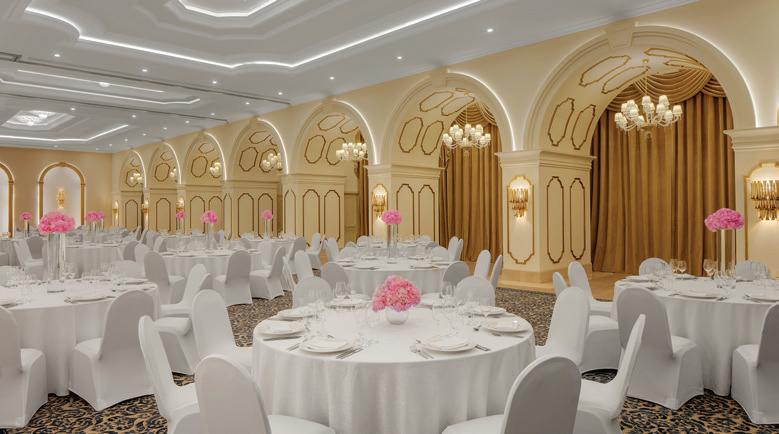
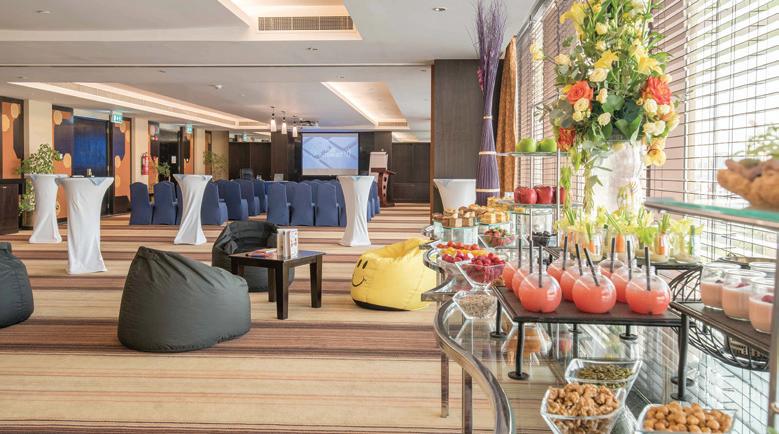
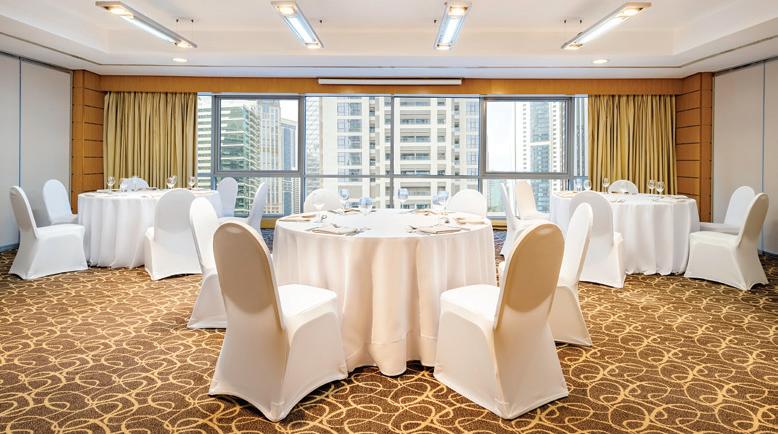
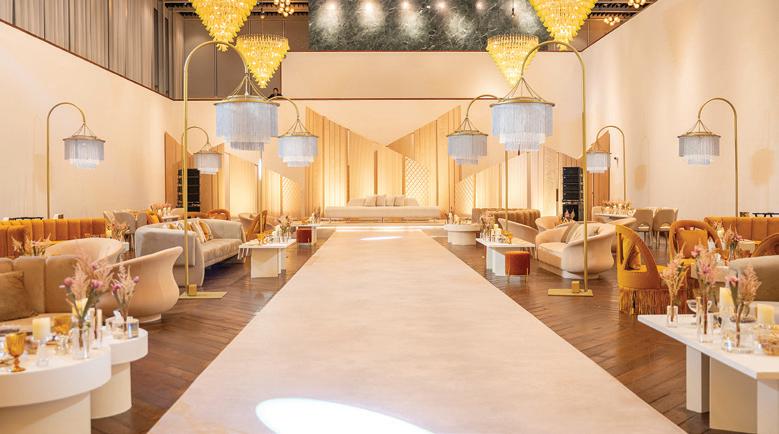


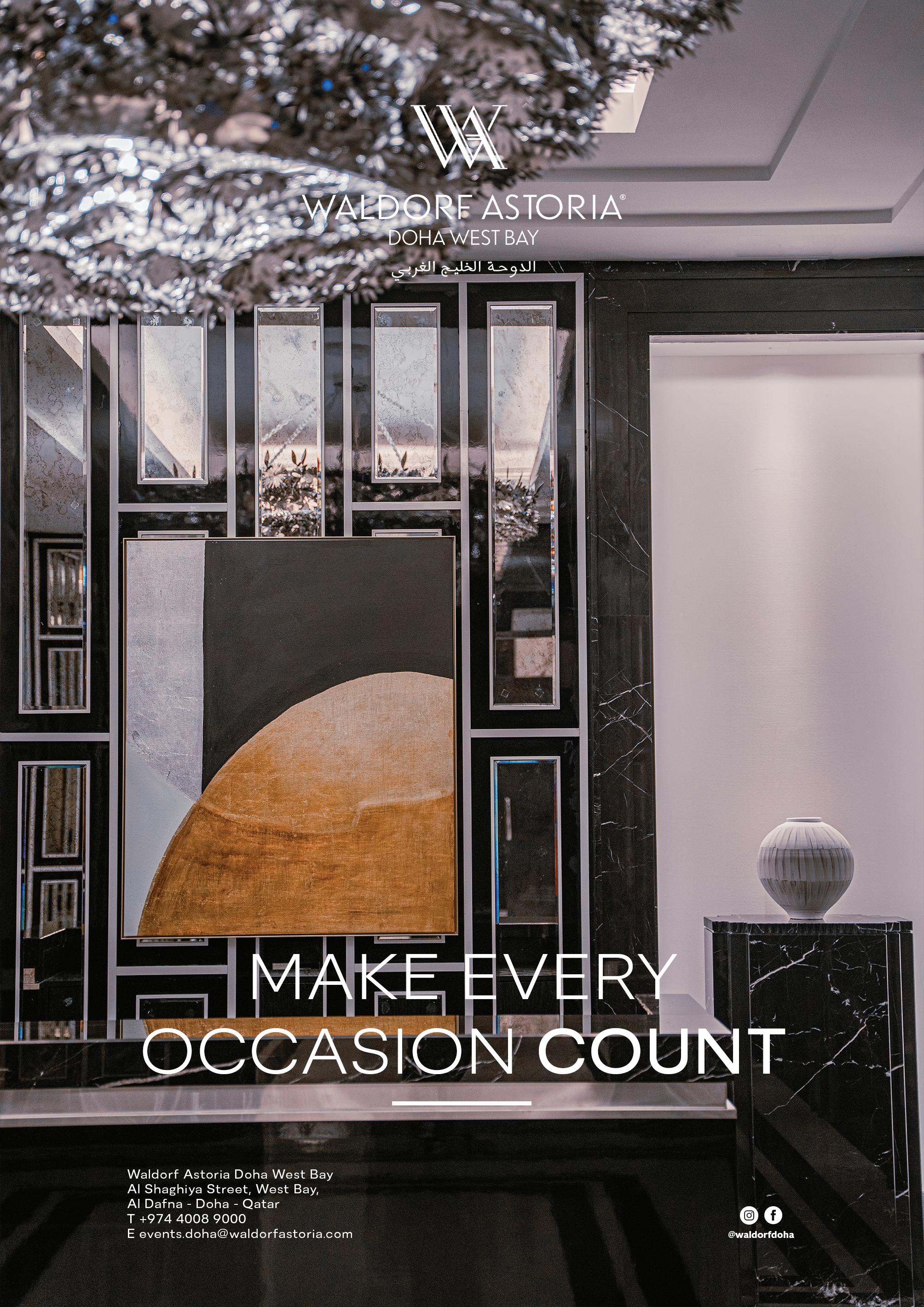

Katara Hall stands as a magni cent venue nestled within the core of the hotel, rede ning standards for opulent weddings. Soaring ceilings, ooded with natural daylight and beautifully apponted it is the nation’s grandest ballroom to hold the grandest of days.
To enquire about our iconic weddings, please: please call +974 4030 7200 or email info.doha@fairmont.com
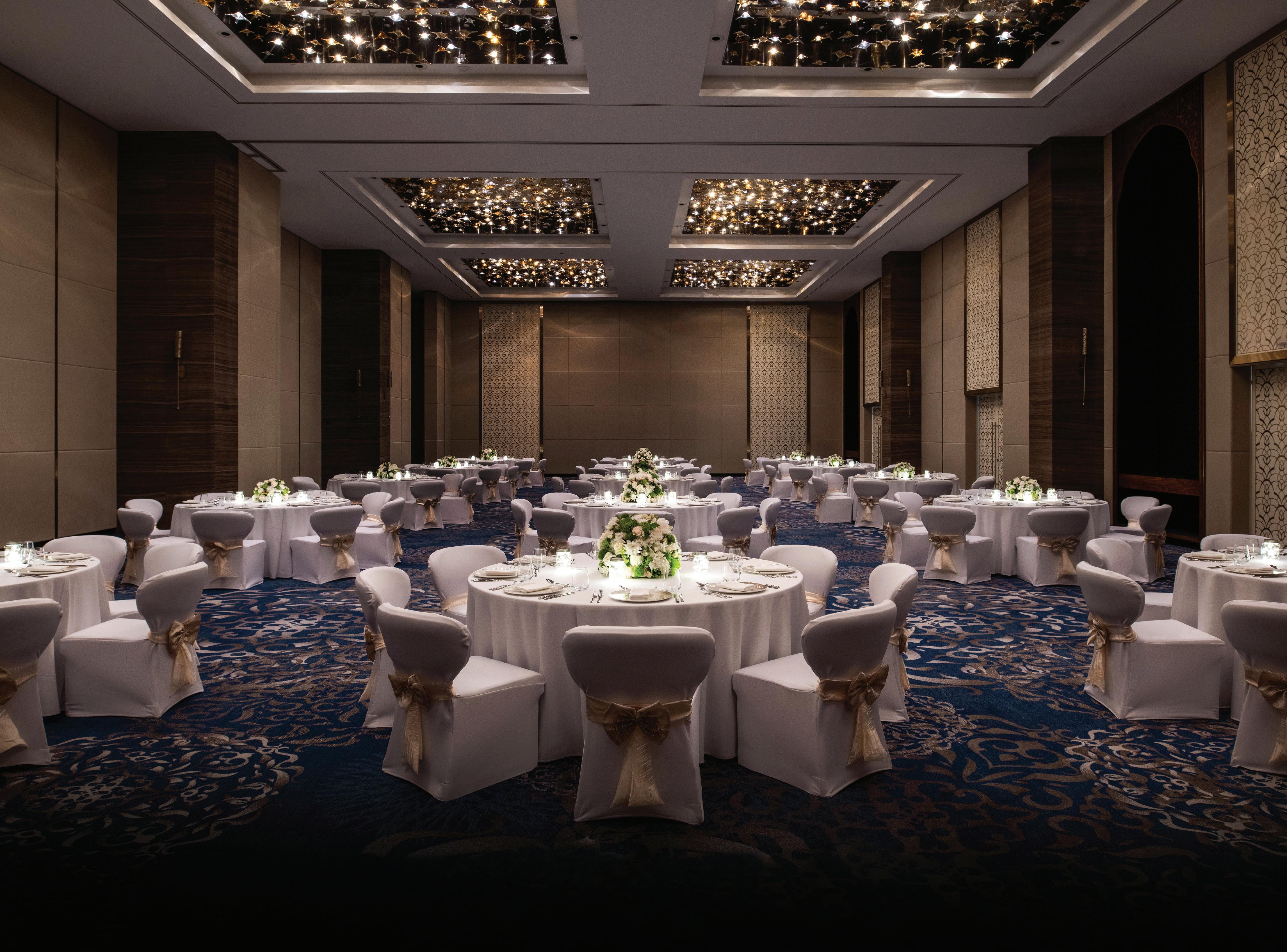
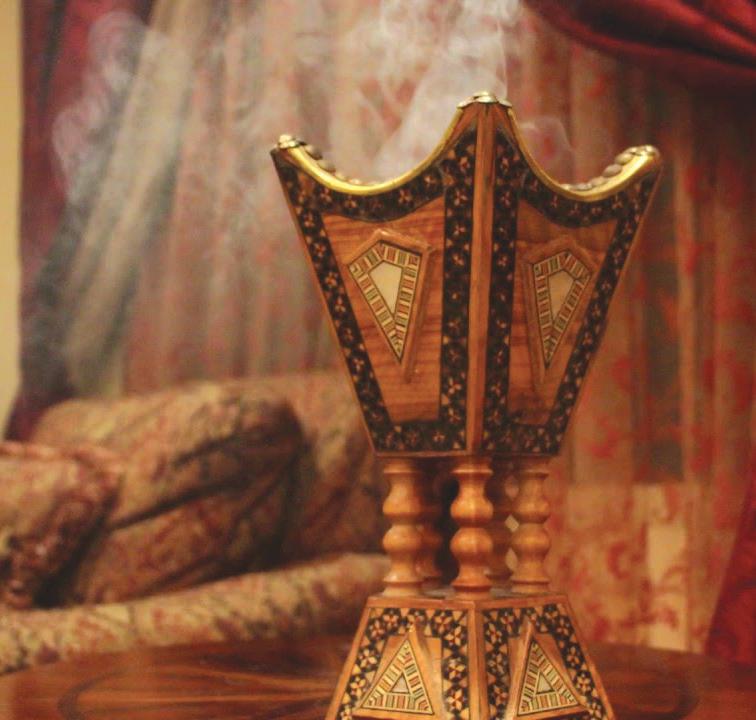
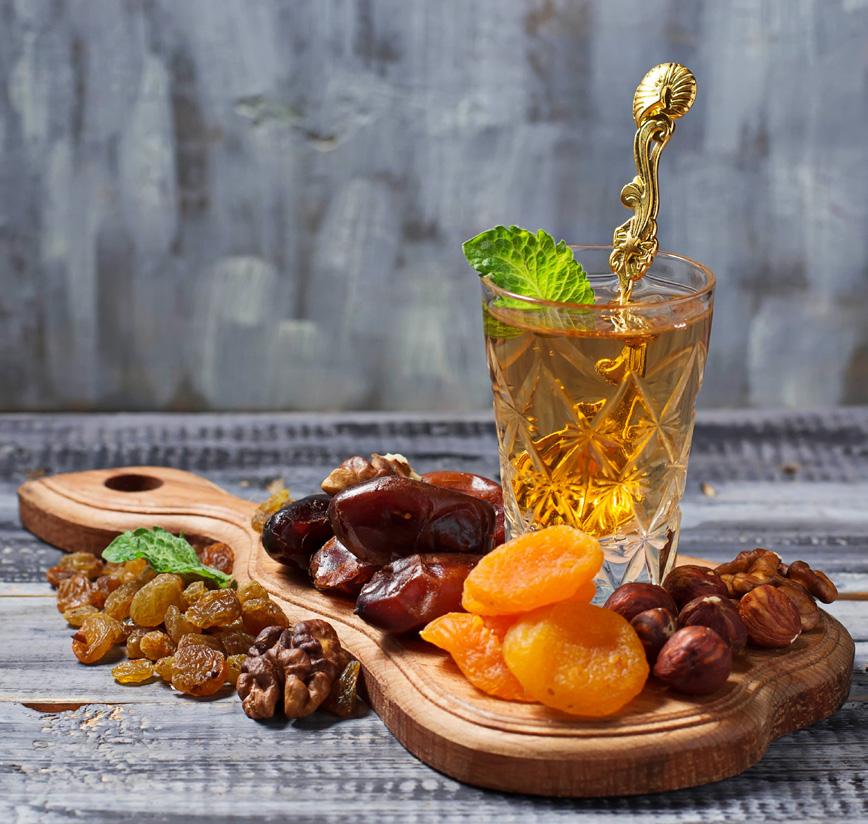
Arab hospitality
First-time visitors to the Middle East are often overwhelmed by the friendly and generous welcome of the Arabs, for whom hospitality lies at the very core of their identity. Among the most highly admired of virtues, hospitality is a trait necessitated to a certain extent by the harshness of the desert landscape; to refuse a man refreshment in such a place was to let him die and hospitality became a necessity enshrined in religion.
Menus are carefully planned by the hostess and tradition plays an important role in the selection of food. Meals usually consist of some foods that have been prepared and stored well in advance to help increase the variety on offer for unexpected guests.
The fine lamb and mutton raised in the Middle East is a traditional favourite meal. Many varieties of fish are also available along with beef and chicken. Milk from cows or goats is usually converted into yogurt or made into cream cheese. Olives, nuts, raisins, salted chickpeas and toasted pumpkin seeds are among the many items on hand as appetisers.
Eating habits vary with the lifestyle and the nature of the occasion. Informally, Gulf Arabs traditionally eat sitting on the floor using their right hand to fold food into khubz (the local flat bread).
At the hotels, you will find sumptuous furniture and cushions, ambient lighting, and soft music. During festive occasions such as Qatar National Day and Ramadan, the hotels will furnish elegant tents and provide a vast array of Arabic foods and beverages to delight all palates.
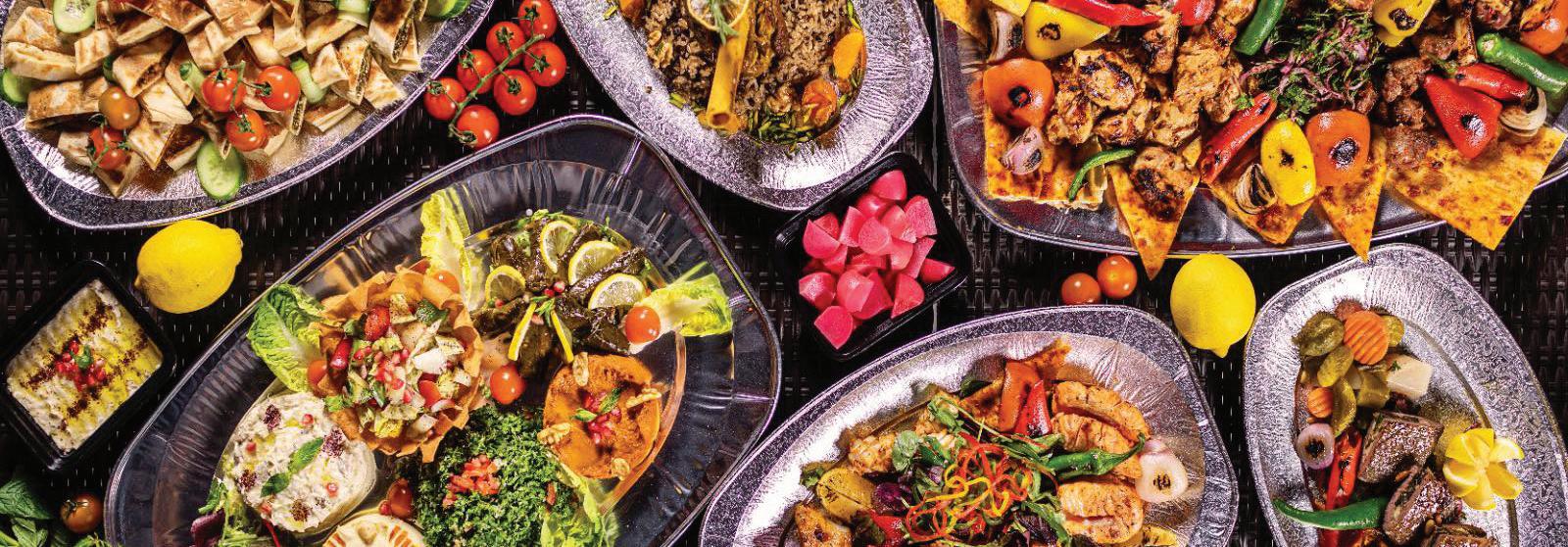
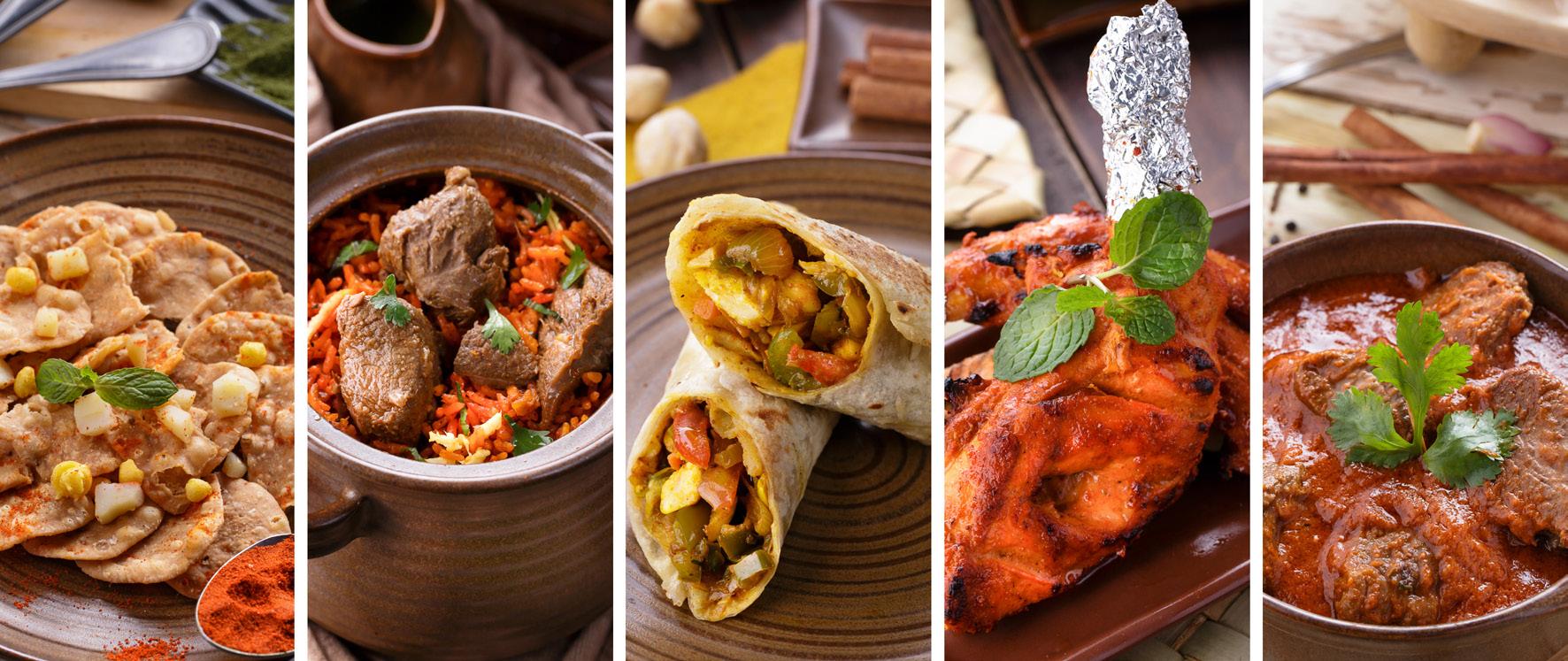
It takes more than spices to conjure up Middle Eastern cuisine – add in good manners, wit, hospitality and a very specific type of etiquette.
The presentation of particular dishes expresses subtle social distinctions and the amount of food offered is both a compliment to the guest and an indication of his importance.
Traditionally, a whole lamb is cooked for invited guests and the specific portion and in what order it is served is directly related to status. At the table the host puts himself fully at the disposal of his guests and it is considered uncouth to ask whether they would like food or drink. Refreshments come automatically and refusals are usually met with repeated entreaties.
In addition to the meal, the host is traditionally required to provide entertainment, conversation and music. Only when the guest has stopped eating will the plate no longer be refilled. A platter of fresh fruits usually signals the end of a sumptuous meal followed by the traditional Arabic coffee, qahwa, and tea.
Tradition also determines how long or short a visit should be and it is considered normal for Arabs to leave almost as soon as their meal is finished. A guest should leave blessing the host, thanking the host and his family for their hospitality, and keep in mind he is now under obligation to speak well of him to others.
Many functions and events in the Middle East will have no definite start or end time, and no itinerary or set plans, as this is considered rude to guests. You can expect to party on late into the night at weddings and other special occasions! And of course, the hotel staff will find be on hand to tend to everyone’s needs, freeing up the hosts to mingle with their guests.
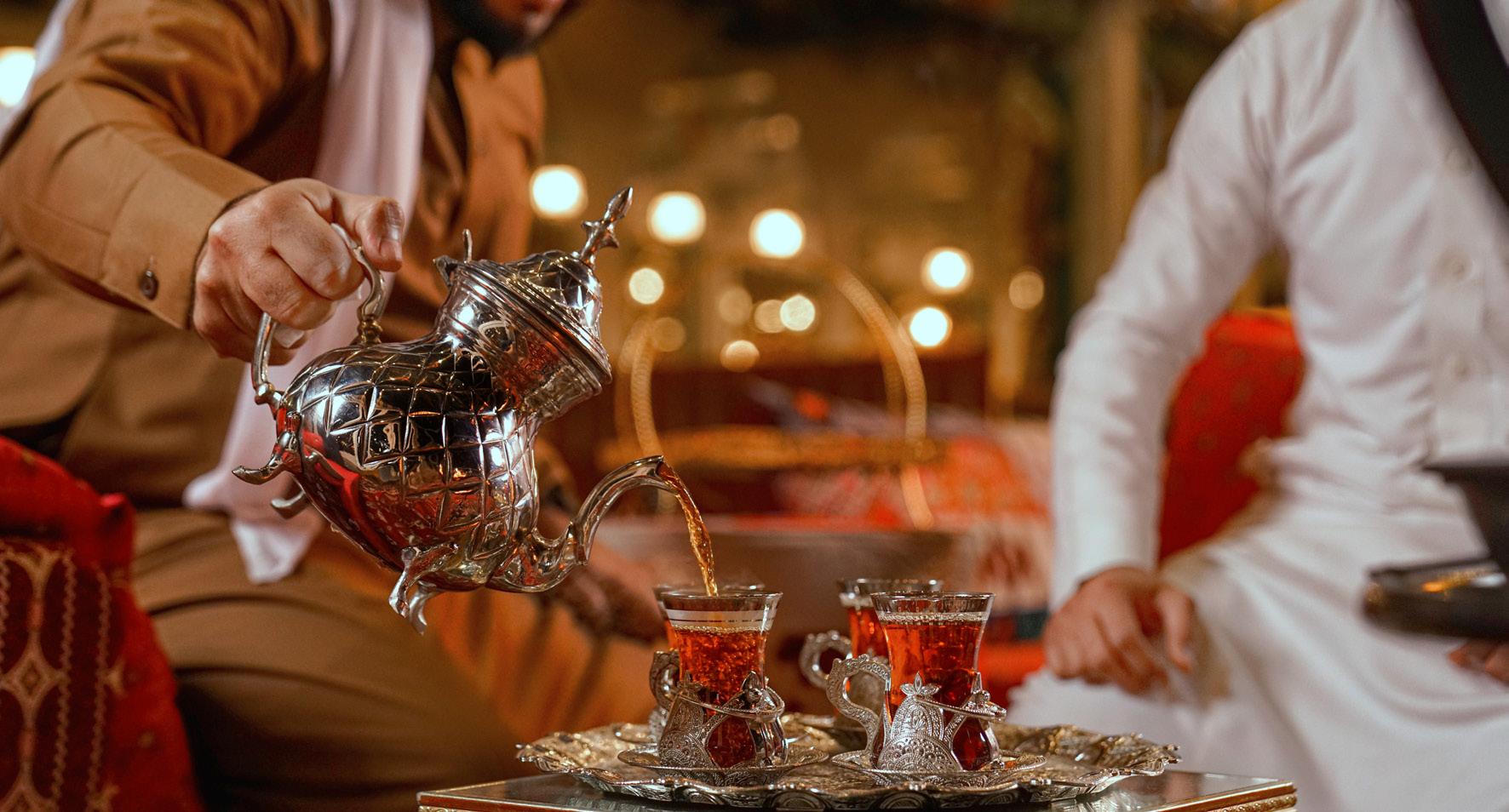
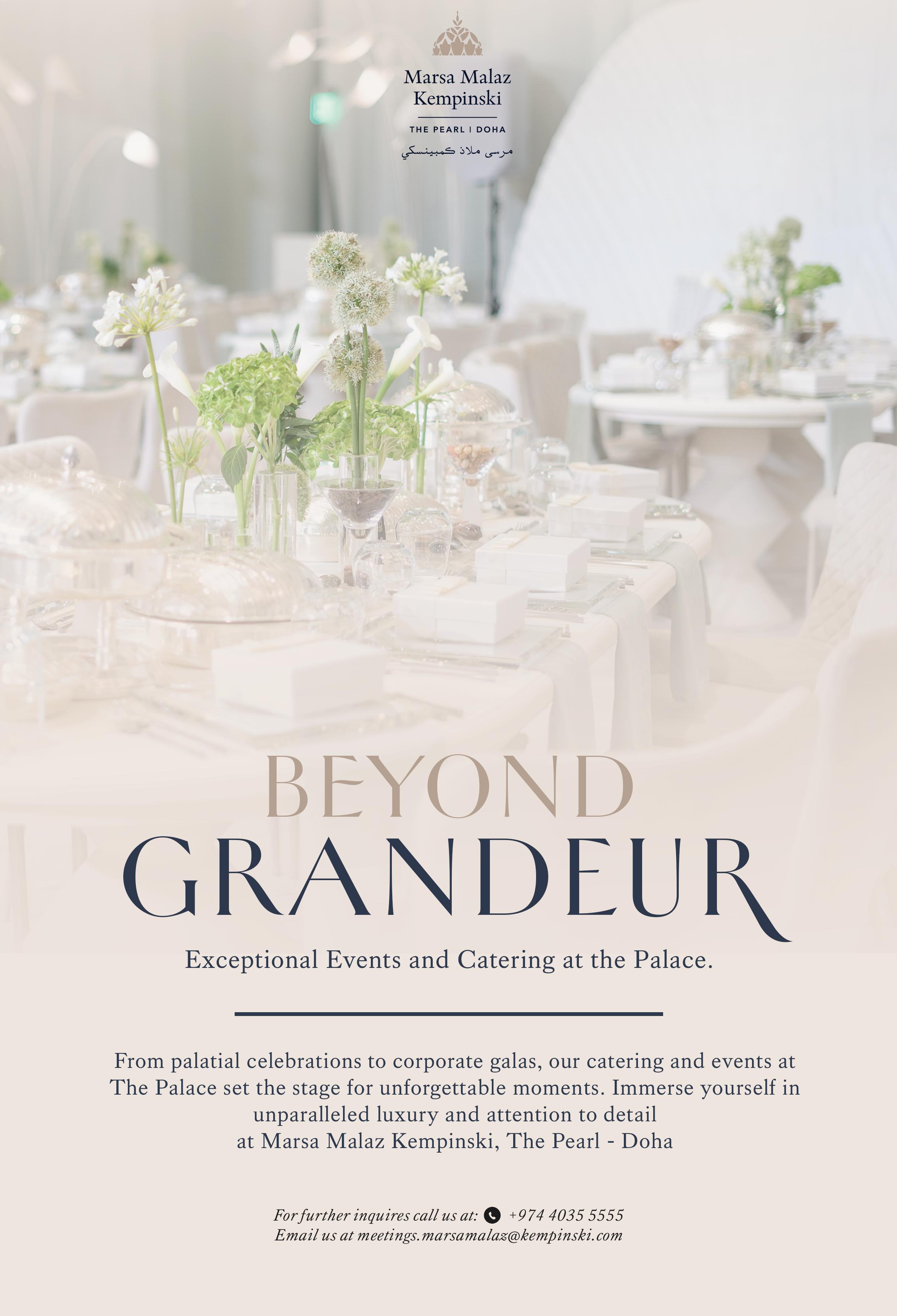
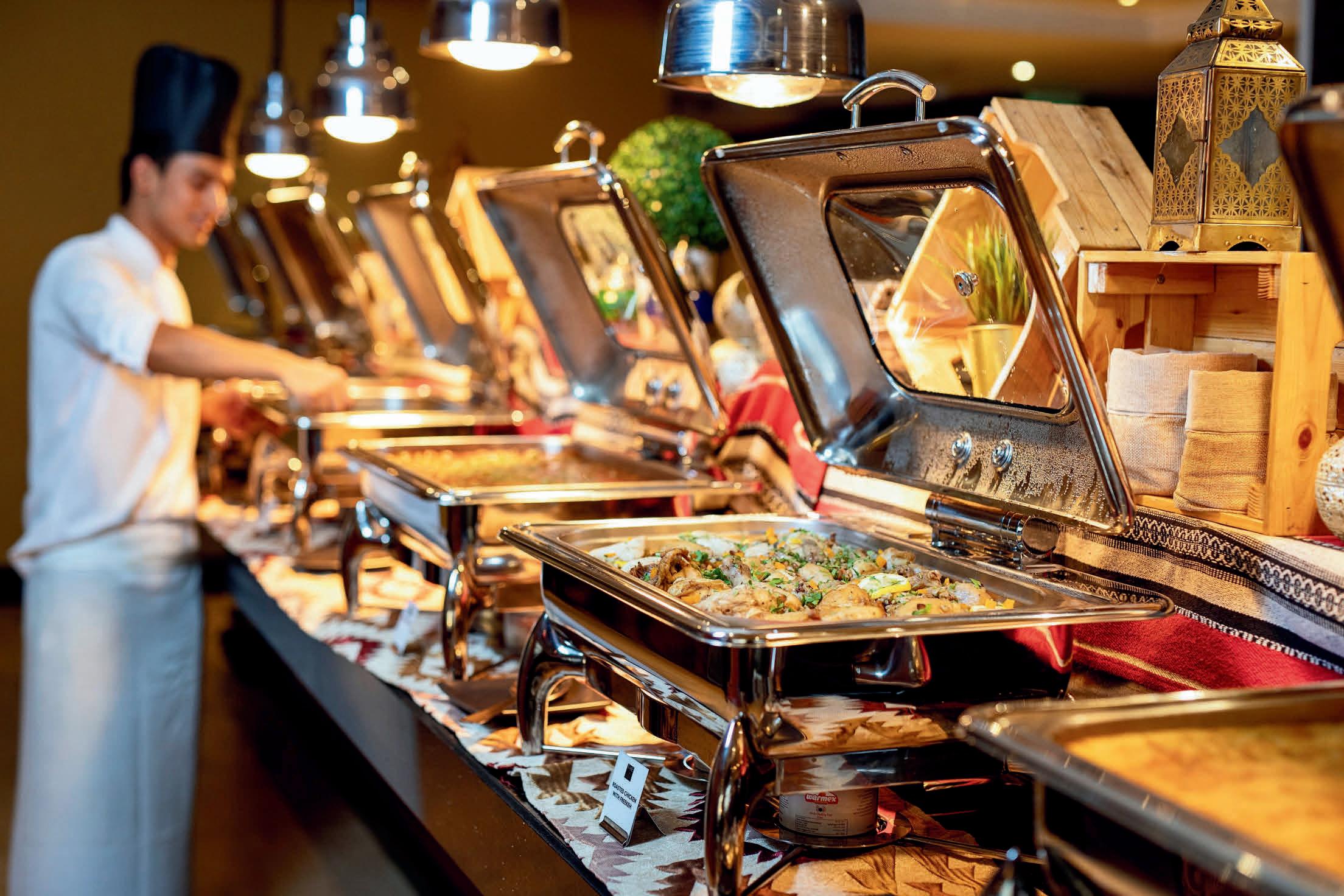
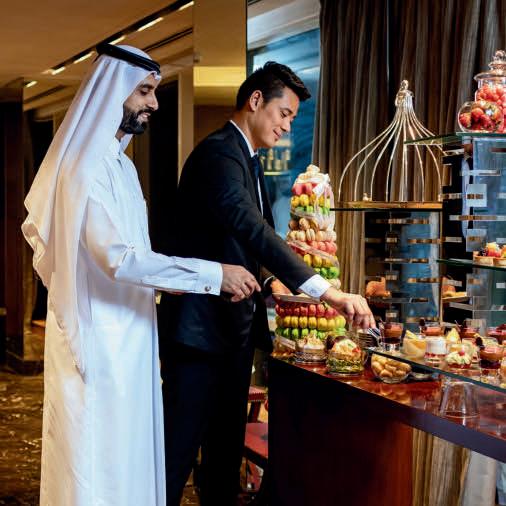
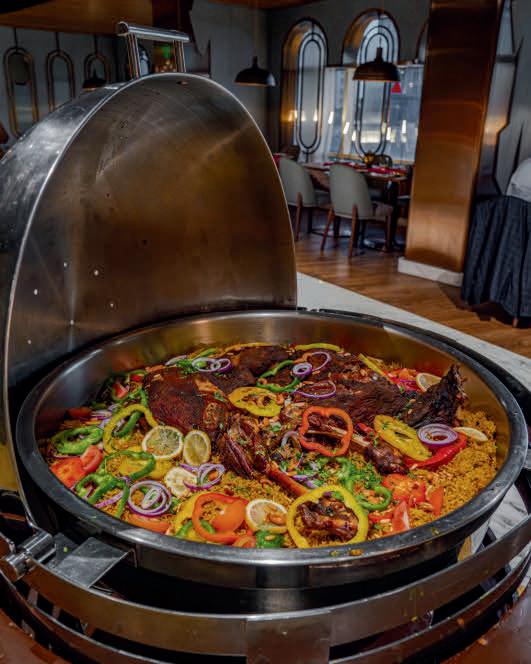
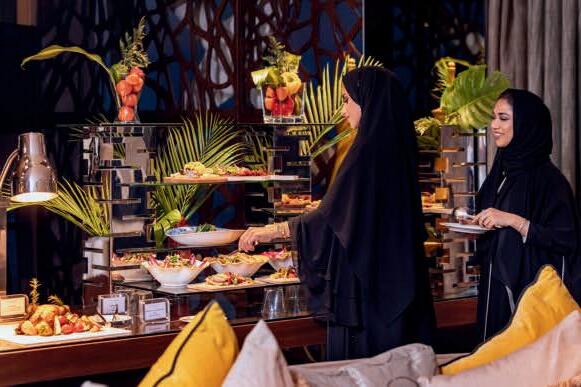

Qatar’s hotels provide the perfect venue to celebrate any occasion. With a flash of colour, music, culture and, of course, delicious food, they bring a festive ambience to Qatar National Day (18 December), Christmas and New Year, and Ramadan and Eid.
Contact one of the hotels in our exclusive listings for more details, visit marhaba.qa for news and events calendars, and follow us on our social media channels.
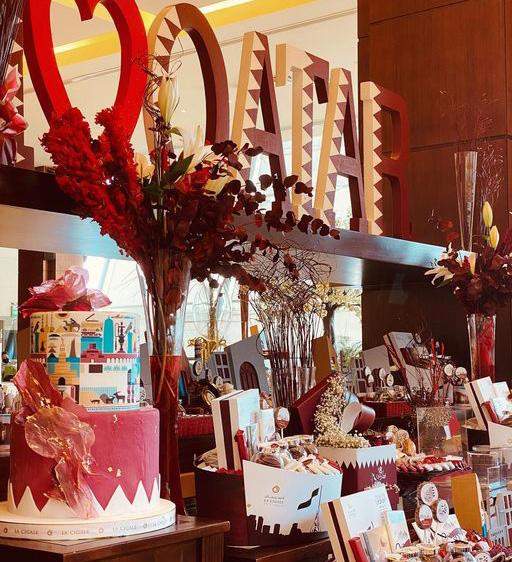
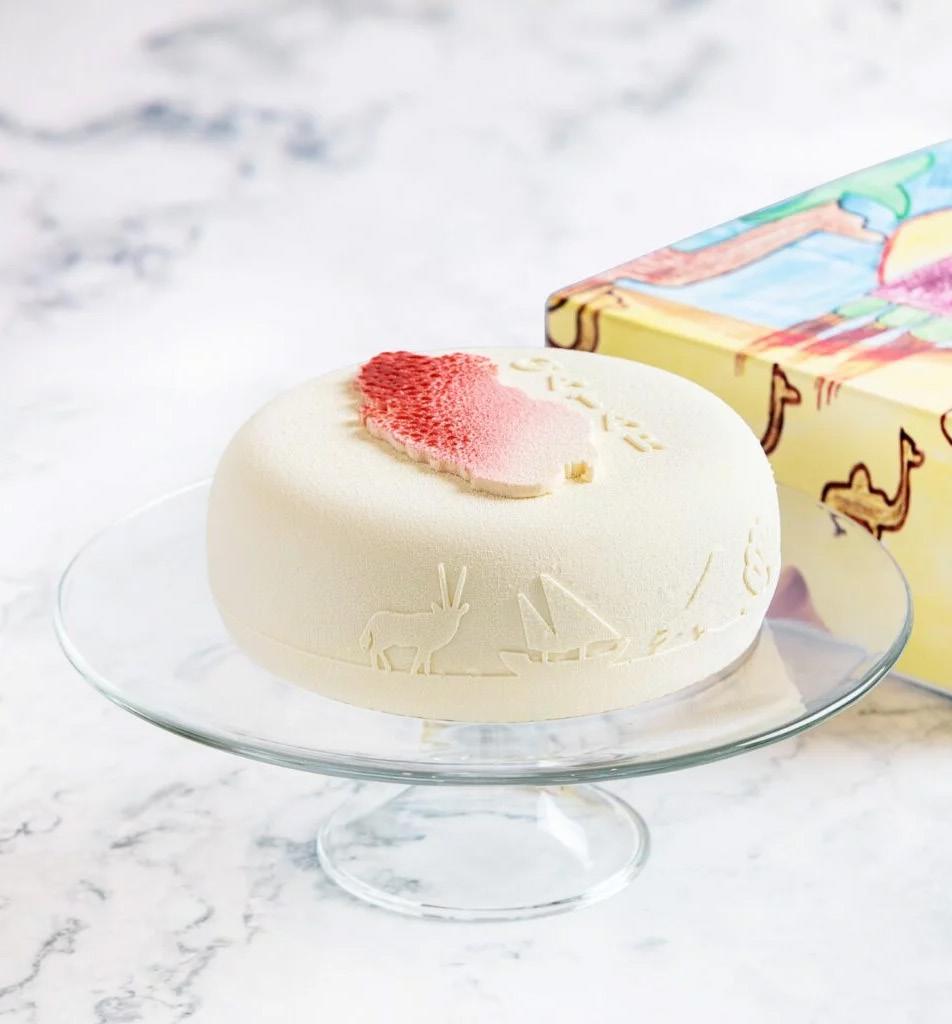
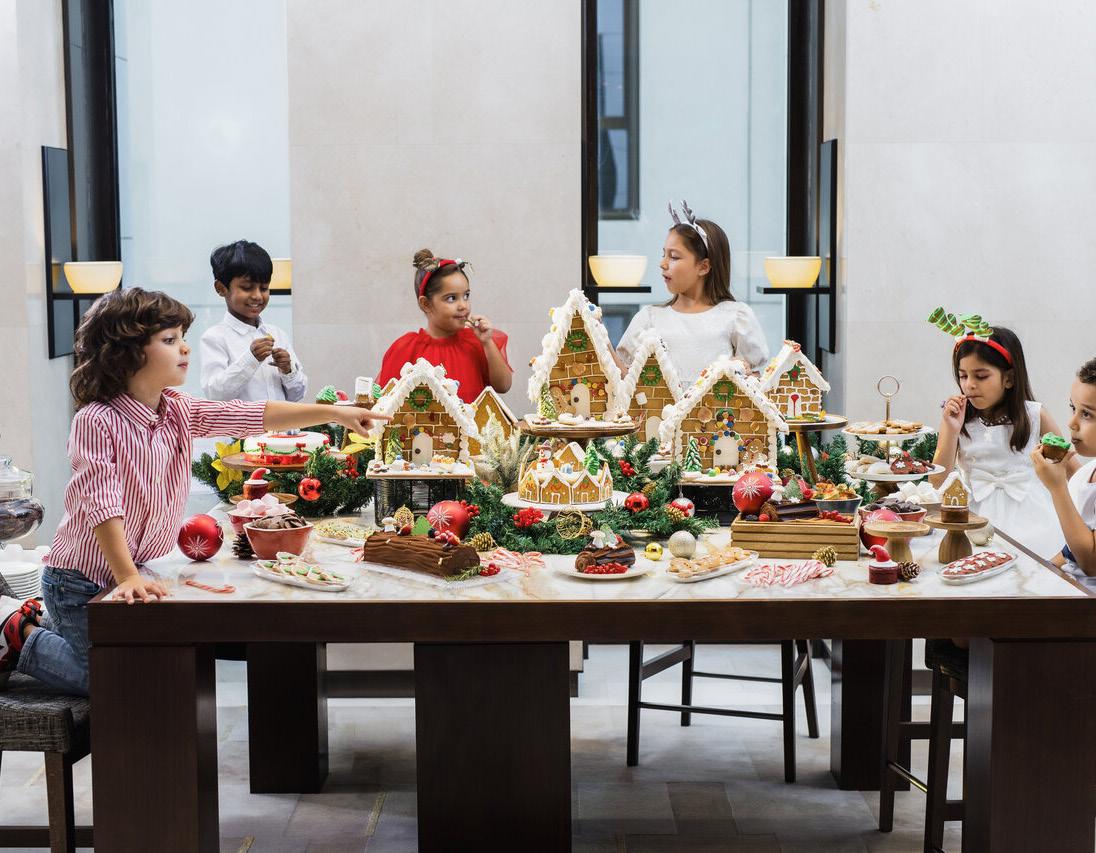
Festive
and events for all ages!
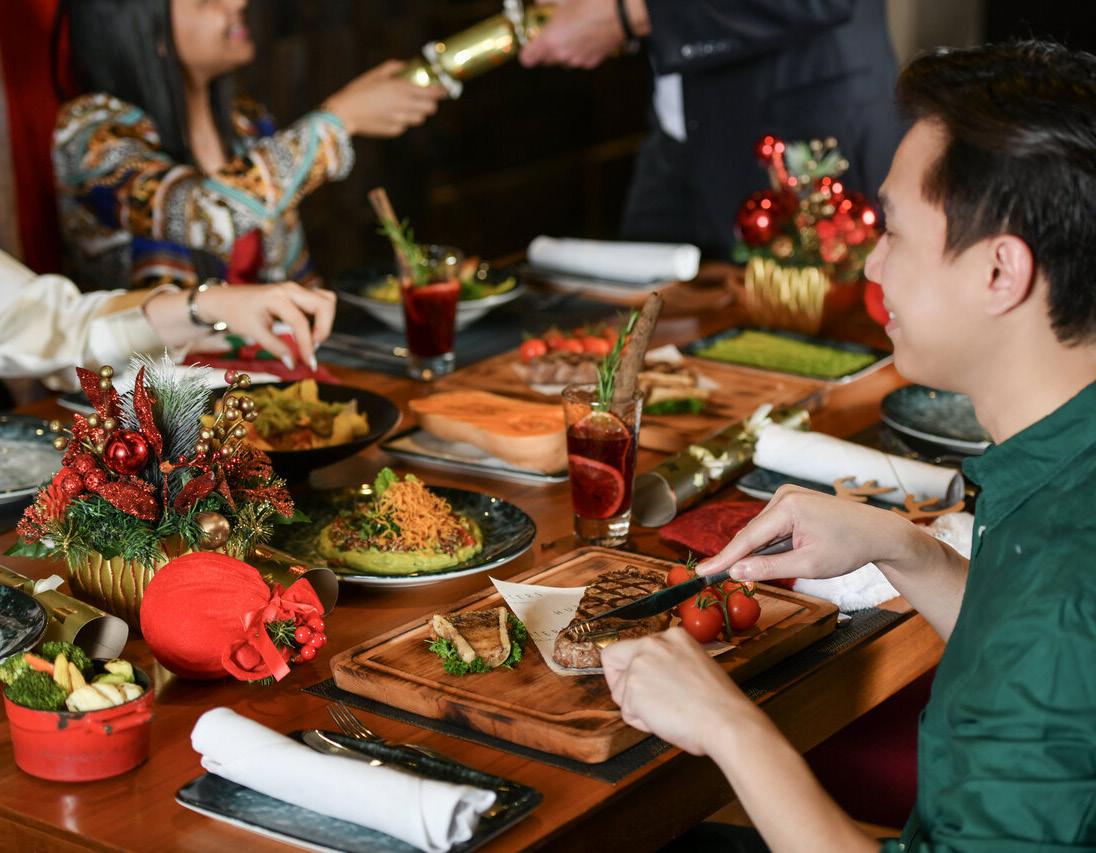


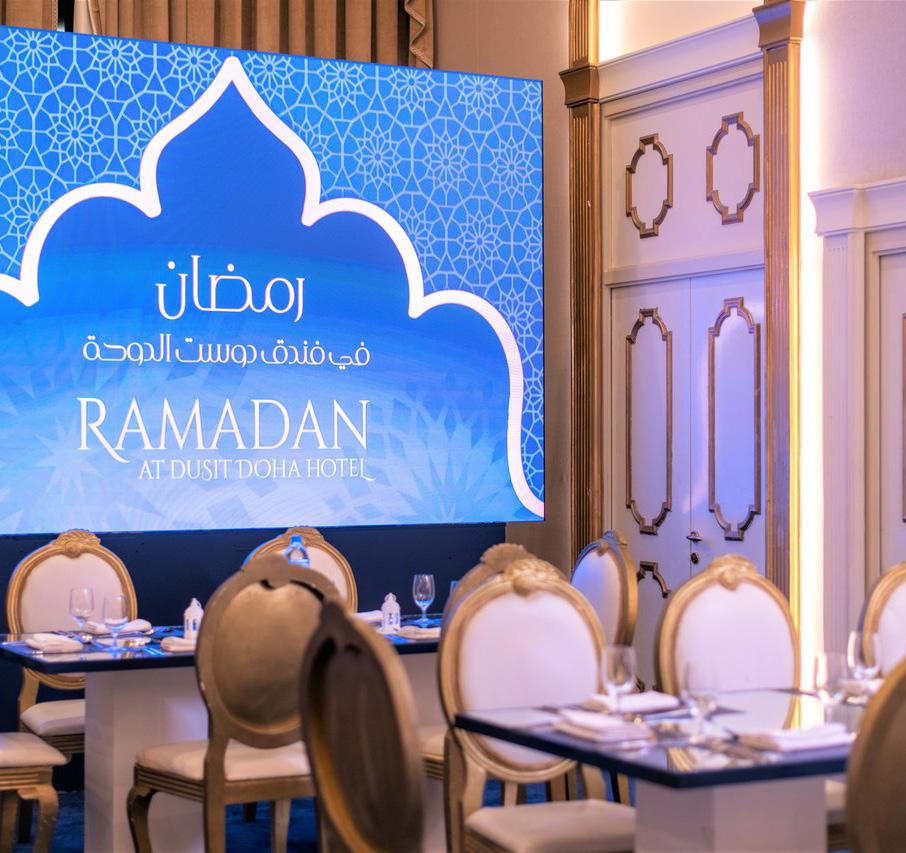
Take it easy over the festive season and have your special day fully catered at home! There are turkey packages ‘to go’, as well as wait staff, tables, chairs, silverware, glassware, and much more readily available – see our listings!
Ring in the New Year in style!
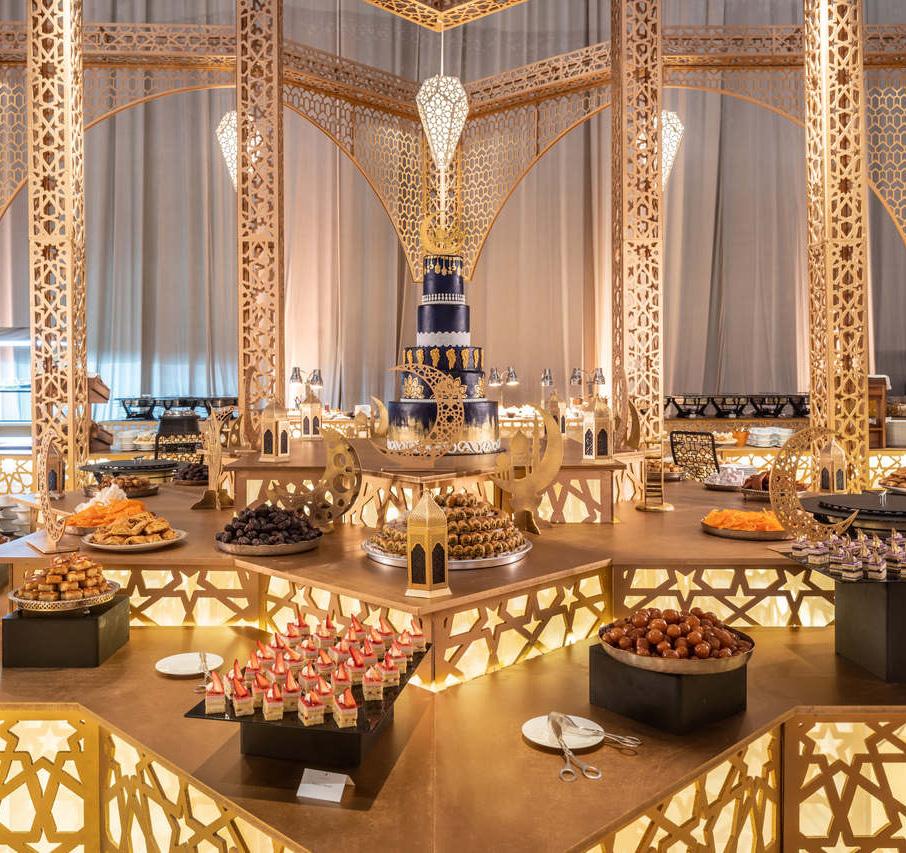
Celebrate Ramadan and Eid, with a variety of options from corporate gatherings to sumptuous tents to enjoy with friends and family.

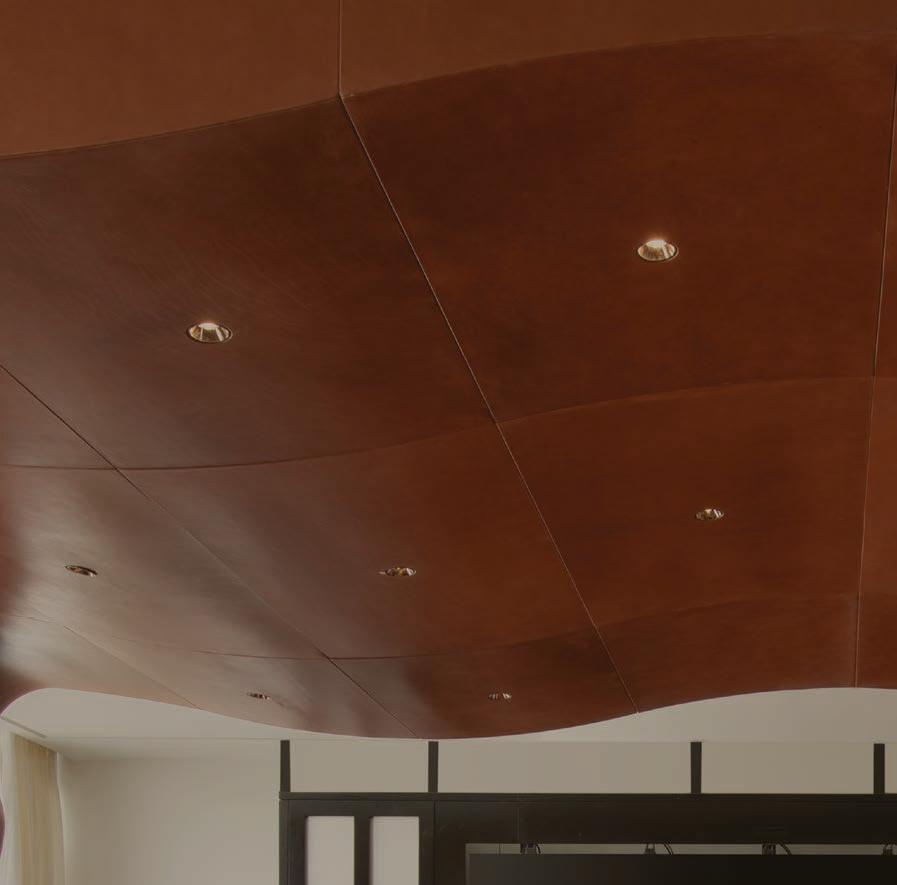


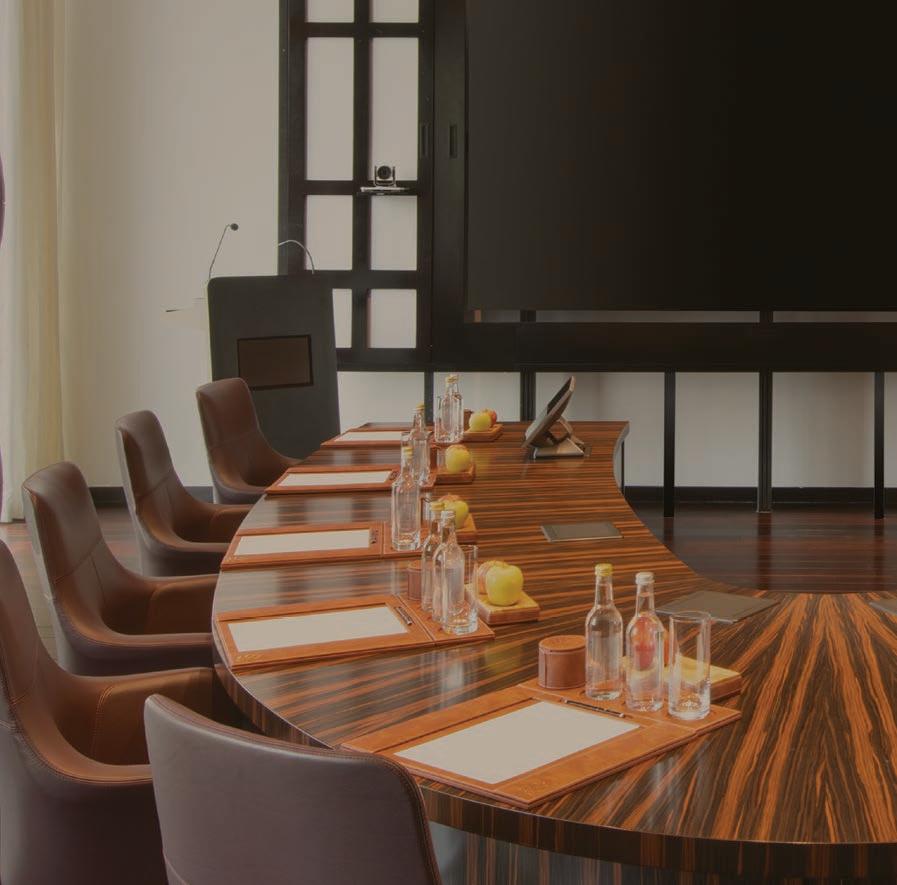
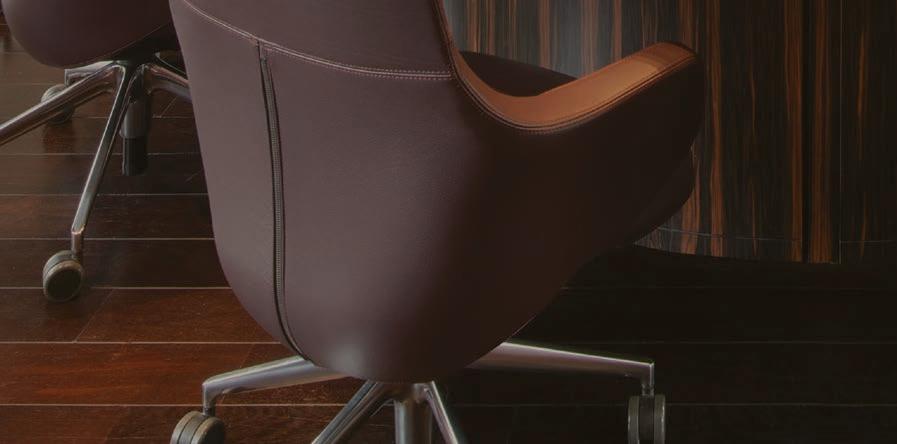
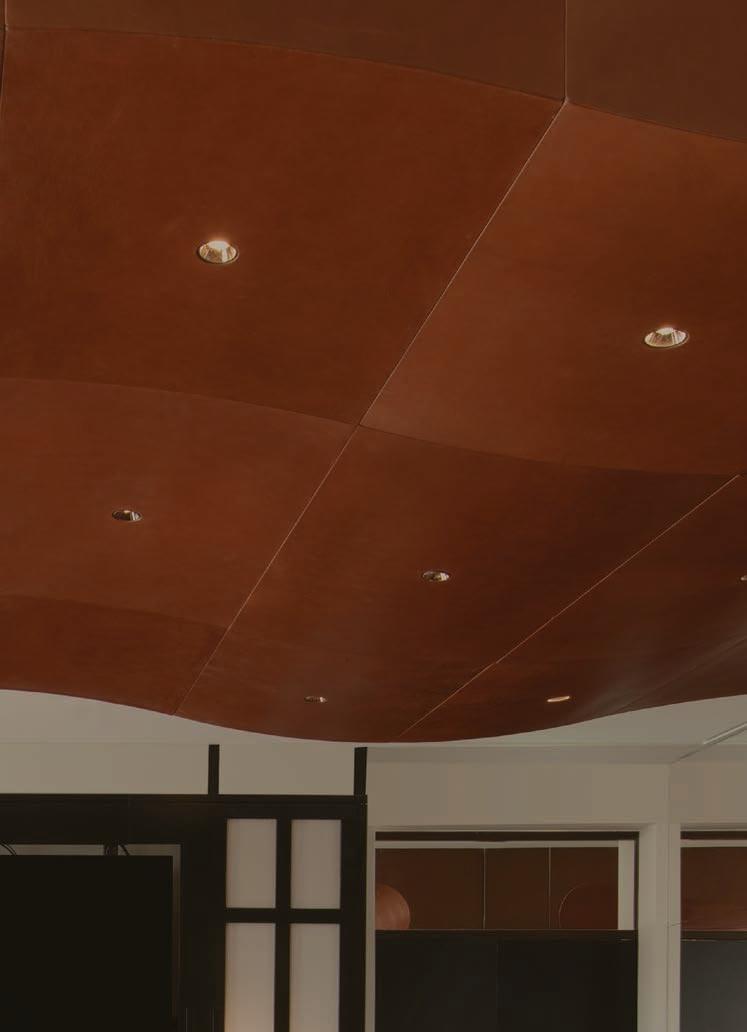
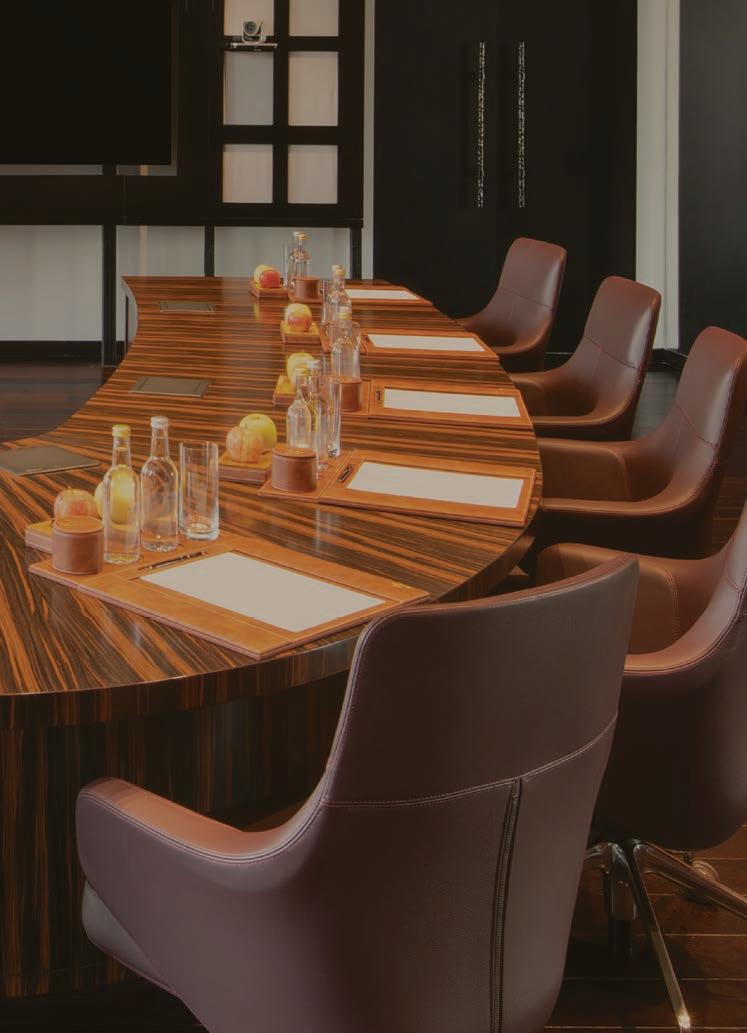

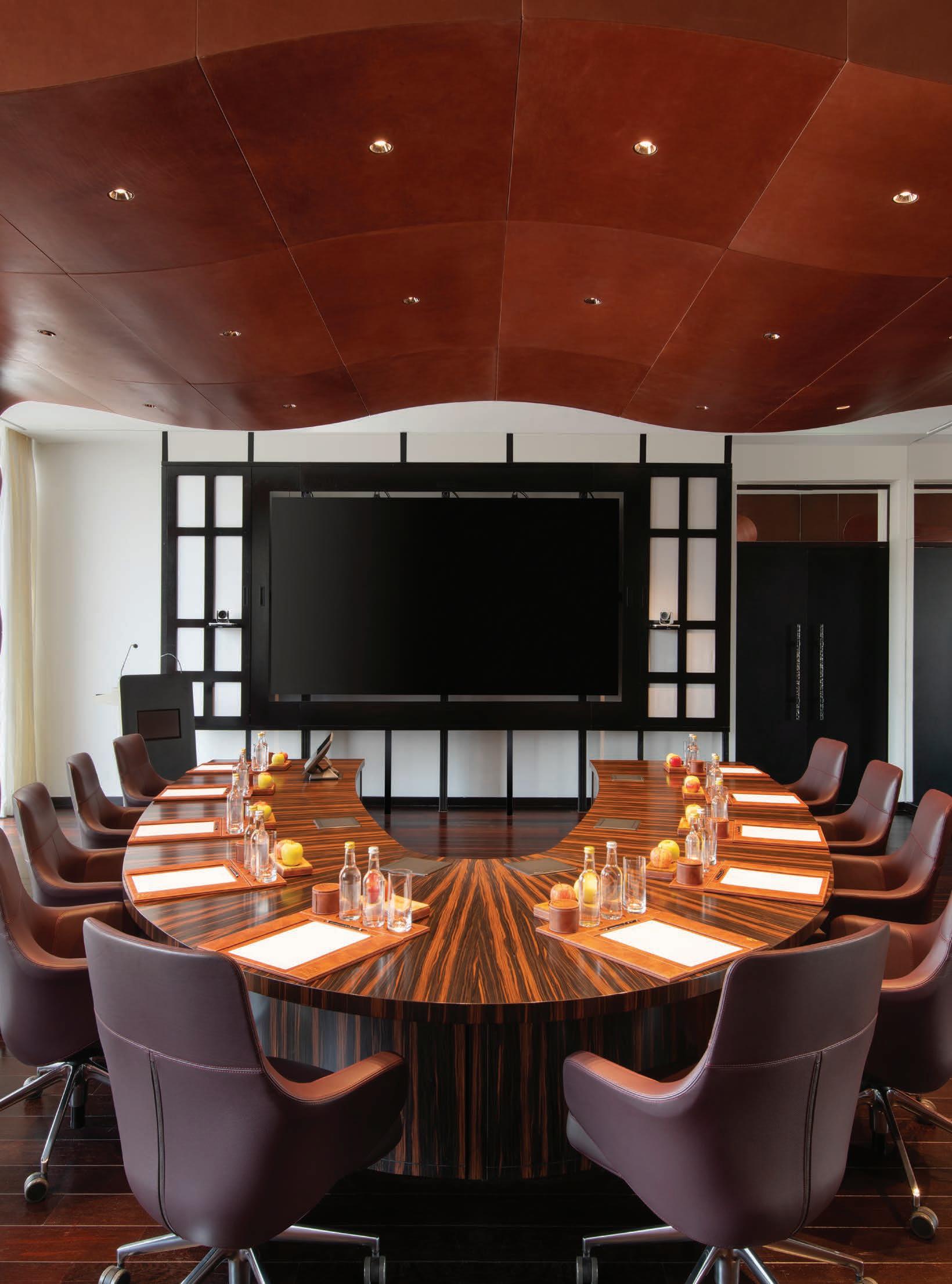


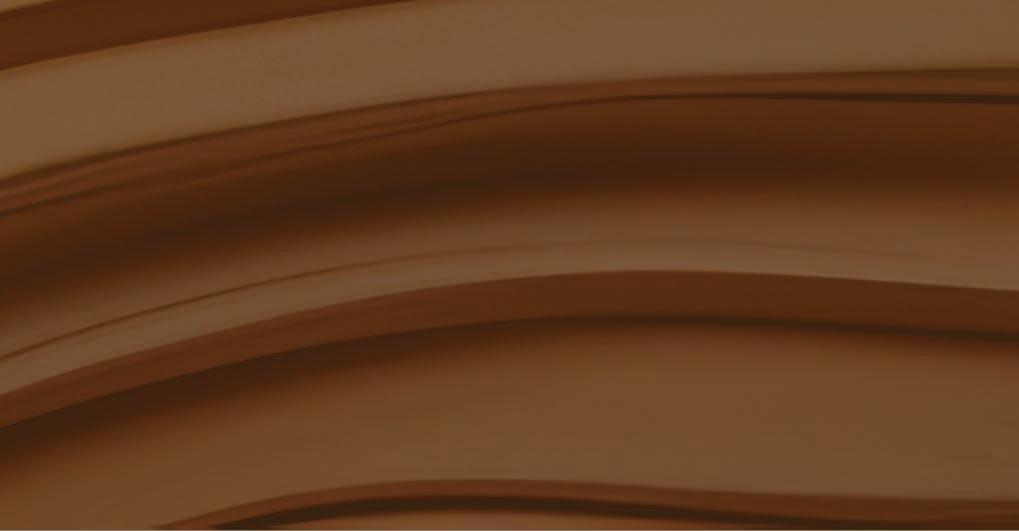
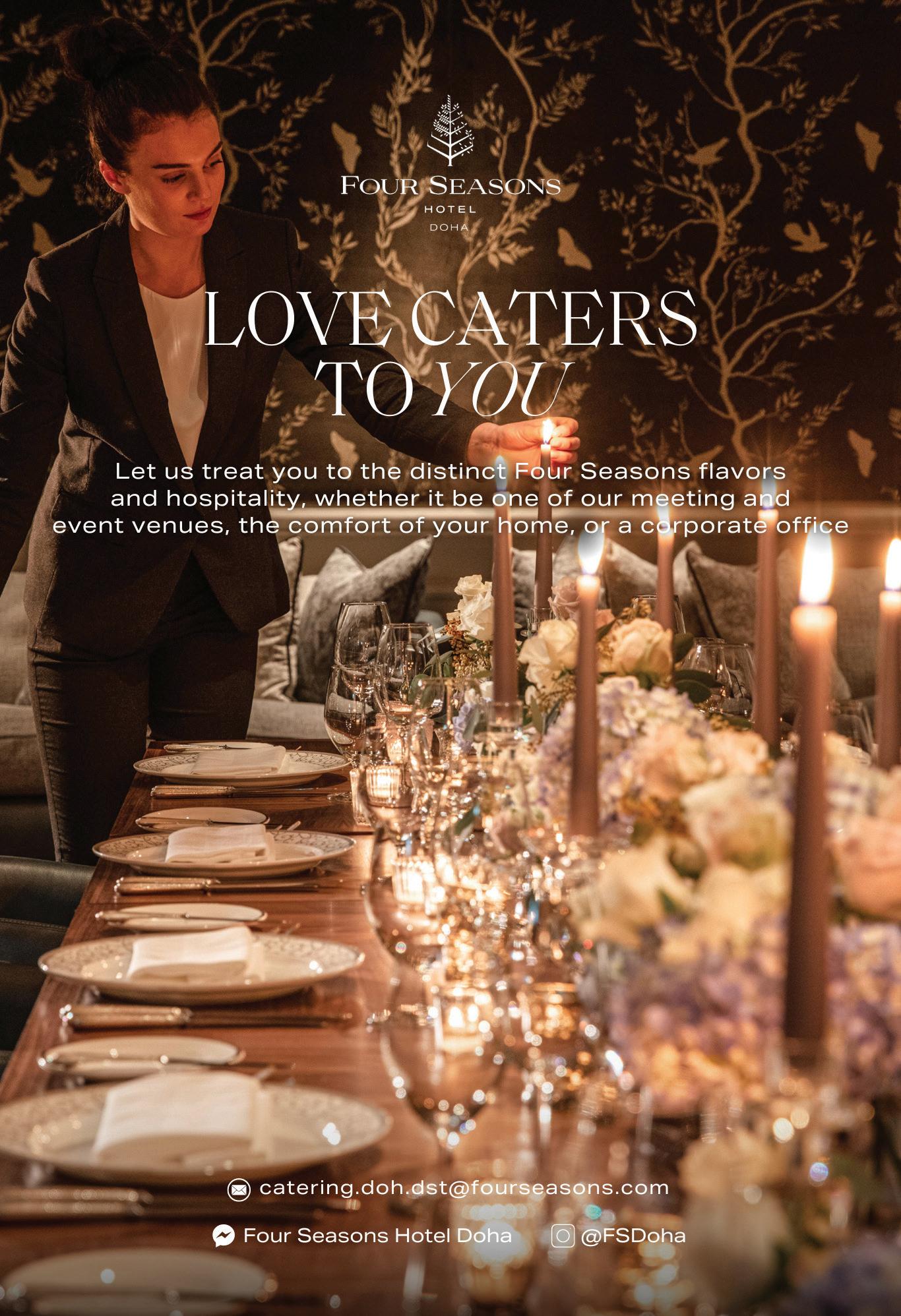

Celebrate your achievements in style at Le Meridien City Center Doha. From elegant venues to personalized décor, we've got everything to make your graduation day memorable. Let us handle the details while you focus on creating unforgettable moments.

Book now and embark on your next journey in grandeur!
For reservations & more information, reach us at +974 4041 3333 | Mobile: +974 33398556 www.lemeridiencitycenterdoha.com
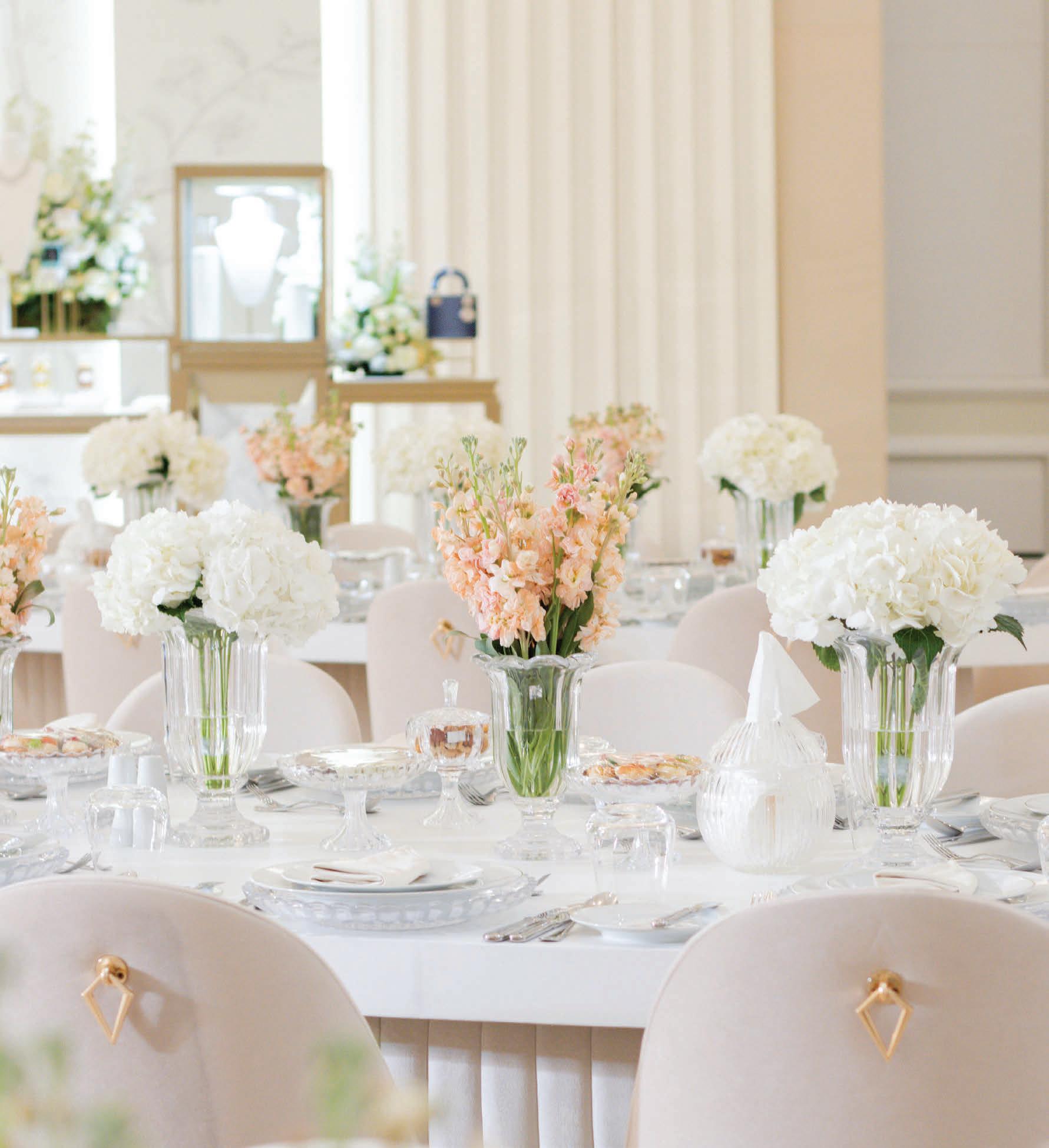
















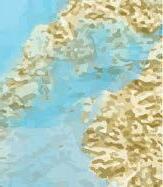

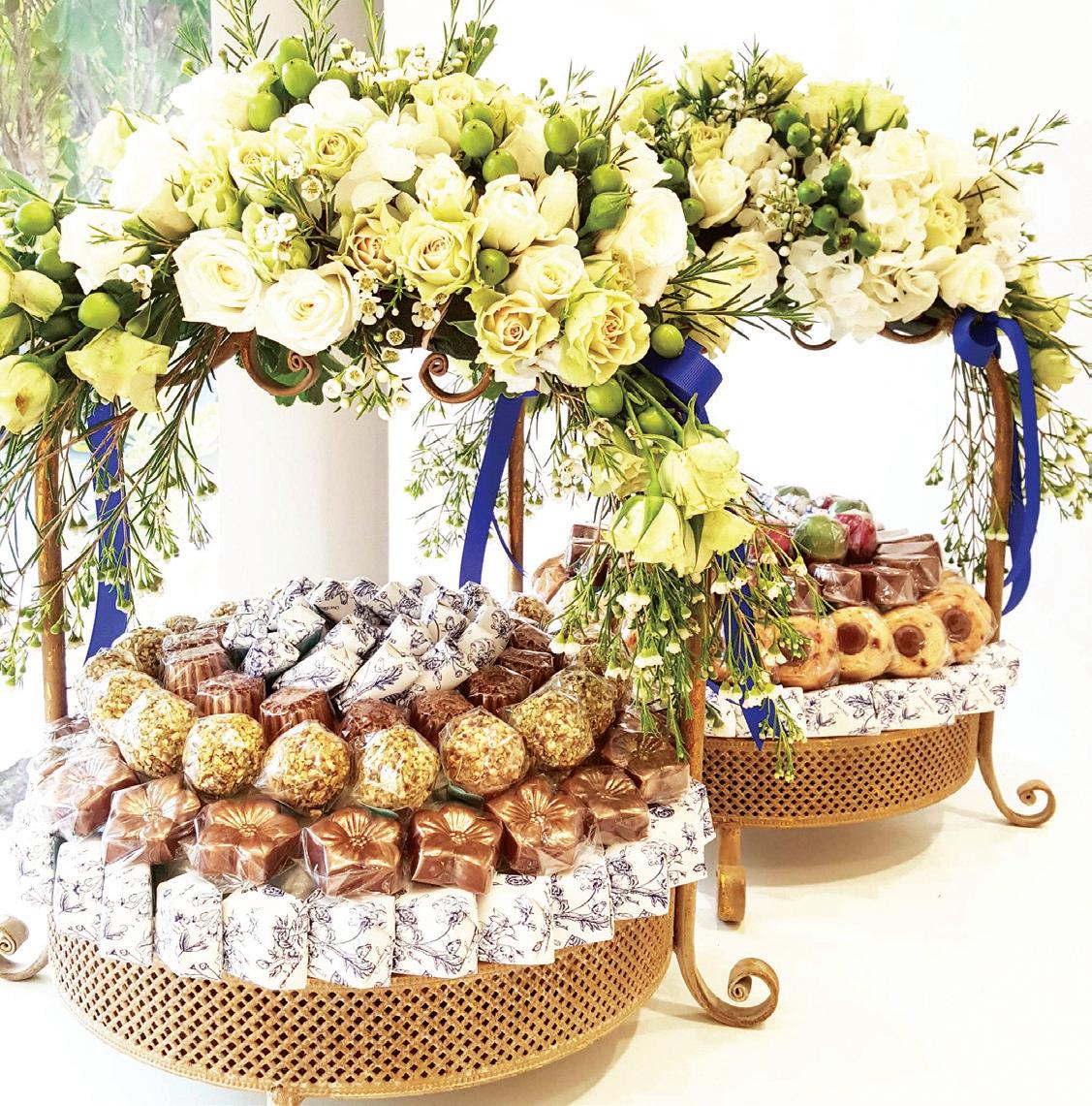
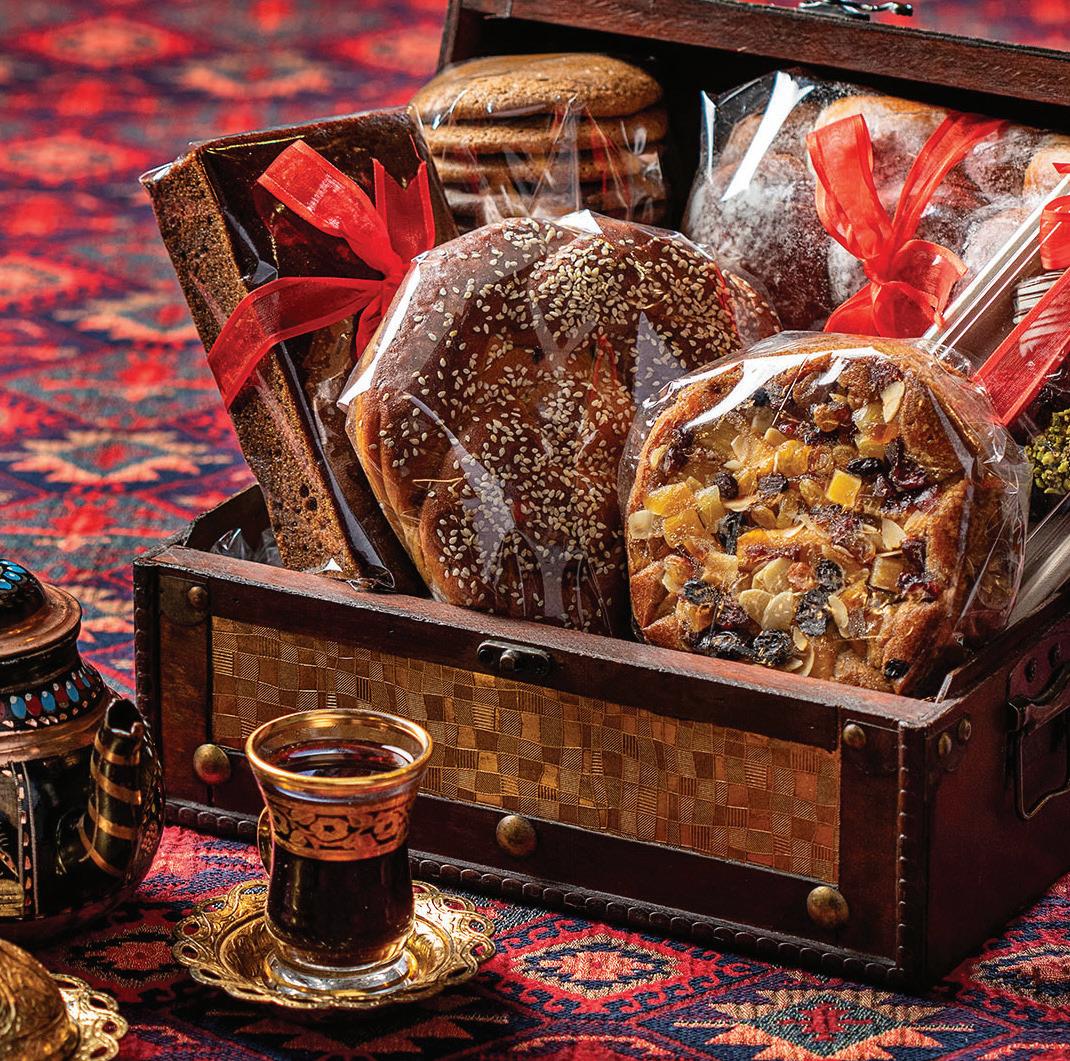
In Qatar, people traditionally give out sweets to relatives and friends to celebrate a joyful occasion, such as the birth of a child.
While these sweet creations have now become pieces of art, they were originally quite simple concoctions, including mulabis (sugared chickpeas) and boiled sweets. Wealthier families might buy sugared almonds, or halkoum
Many shops now design speciality confections for births and weddings. The idea is not just to give a sweet treat, but also a permanent memento. The chocolates are beautifully decorated and wrapped in delicate tulle and they lie in containers as varied as their confections.
Like births, weddings are celebrated with an equal amount of joy and chocolates. Wedding favours, traditionally just sugared almonds, are given to female guests during the bride’s celebrations. Many will have the name of the couple incorporated in the design and are sure to match the colour scheme of the wedding decorations and flowers.
During Eid celebrations, every visitor is given something sweet – not just chocolates but also dates and dried fruit – and since one is required to pay respects to all family members and friends, this can be a daunting task even for the most ardent sweet tooth!
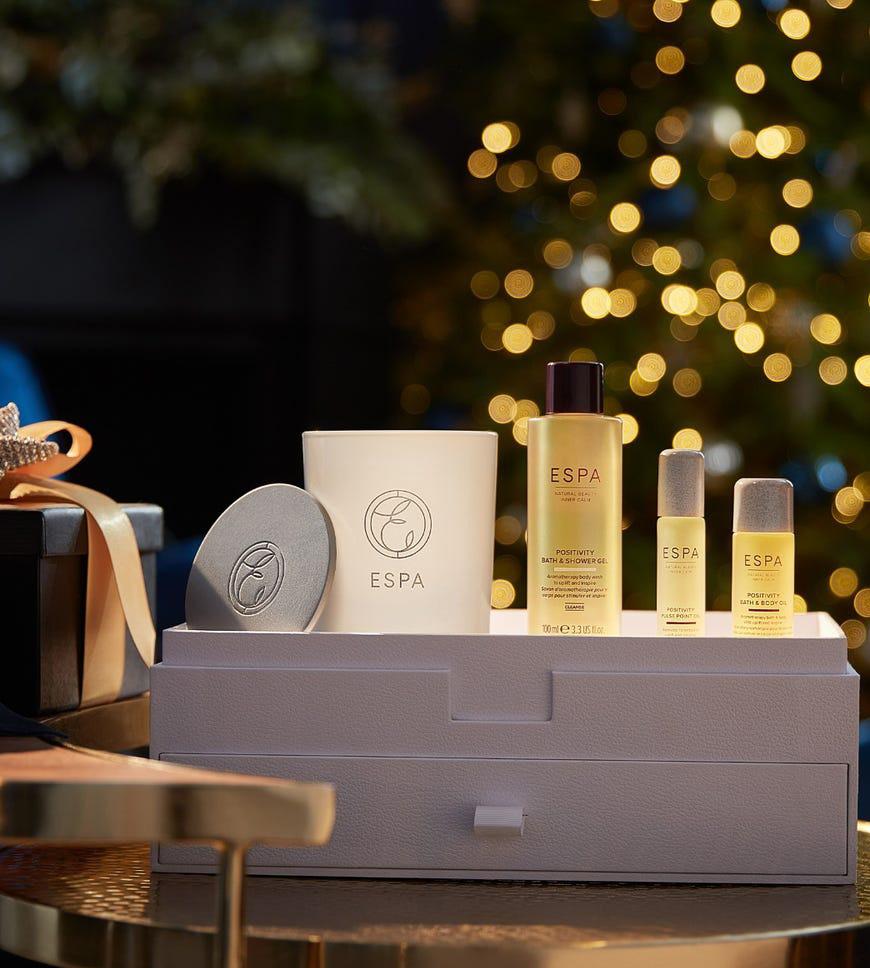
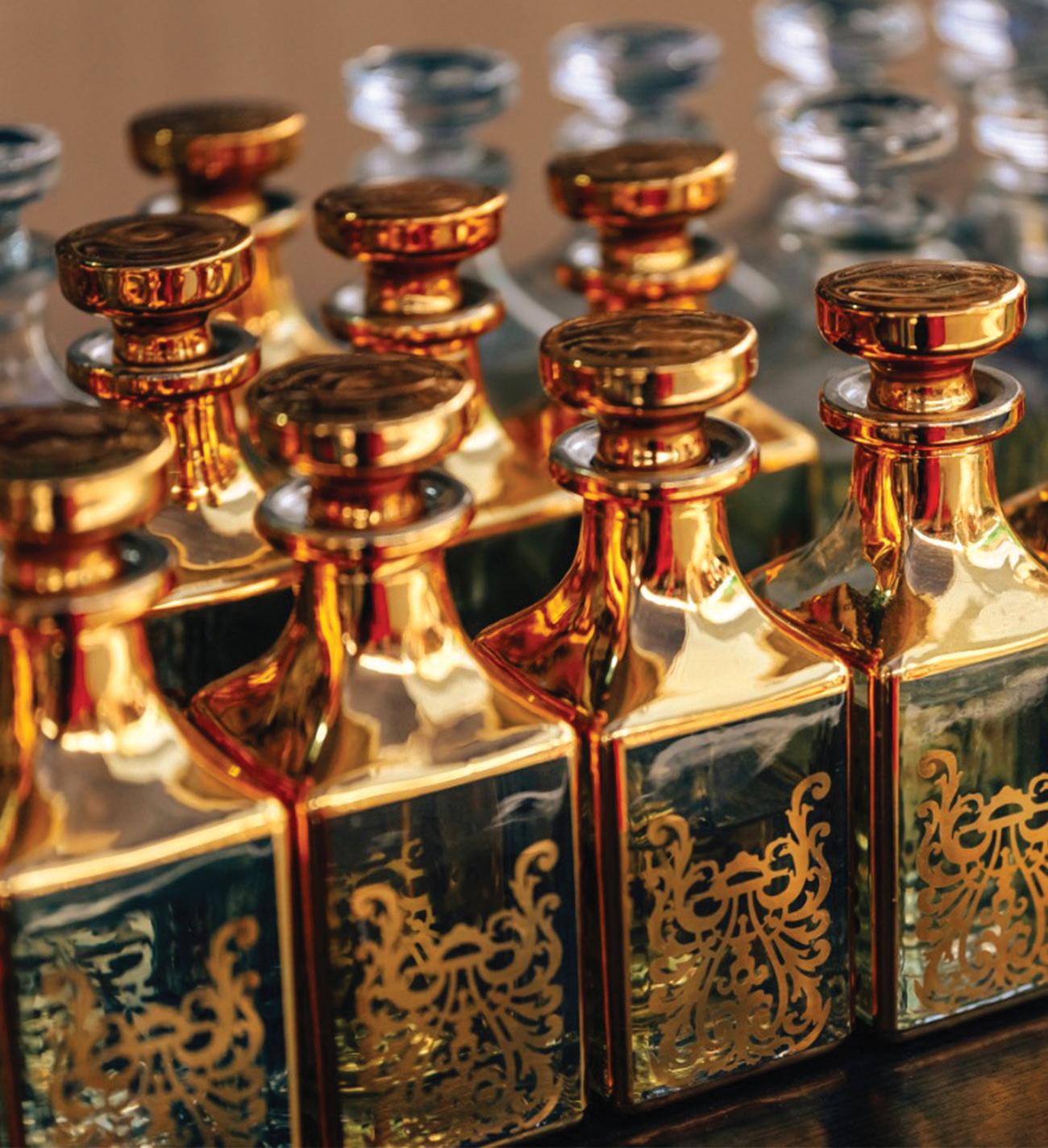
Walk in to any Qatari home and you will be greeted with burning incense, a traditional sign of welcome. Mabkhara (incense burners) are passed from guest to guest so that they can waft the smoke through their headdresses and clothes.
The design of the mabkhara has evolved from a simple, clay, goblet-like dish to an often elaborate and expensive item – even electrically heated mabkharas are now available alongside charcoal ones.
Bakoor (incense) comes in a variety of fragrances from an assortment of prized plants, and is often a mixture of gums and resins combined with aromatic spices, traditionally burnt over hot charcoal. Popular incense in Qatar are frankincense, myrrh, sandalwood and oud, favoured by the women of the Gulf and obtained from the Agar tree. The scent is similar to sandalwood and is long-lasting, although it can break easily. Due to its widespread use in Arabia, the price for one kilogramme of oud in the form of oil or wood has risen as high as USD10,000 and is therefore a prized gift.
Incense and its accessories can be found in modern shopping malls as well as traditional souqs, like the Omani Souq at Al Sailiya Central Market. Freshly laundered clothes are still aired on small wooden racks that are placed over burning oud to catch its fragrance.
In the Gulf region, there is little distinction between men’s and women’s fragrances, with most traditional fragrances being used equally by both. Fragrances are oil-based and can be individually blended by the traditional perfume sellers found in the souqs. Qatari ladies are skilled at mixing western perfumes with oils to create their own unique blend.
Trays of perfumes including rose attar, sandalwood, jasmine and ambergris are passed around among female guests in Qatari homes at the end of a gathering, together with long-necked brass or silver sprinklers (marash) filled with rosewater.
As well as sweet treats at weddings and Eid, guests may also be given incense and perfume to take home, and equally are a wonderful item to give your host.
Hotels offer a range of services to clients looking to optimise their special day, whether this is a birthday celebration, business event or wedding. Their planners will be able to walk you through every step of the way, easing your stress levels!
Those guests looking for last-minute gifts will find a wonderful selection from stores around town – or why not see what is on offer at the hotel itself? Many have their own gift shop, florist, bakery, chocolatier, and even the spa offering pre-packaged items suitable for the occasion, and may even gift wrap it for you.
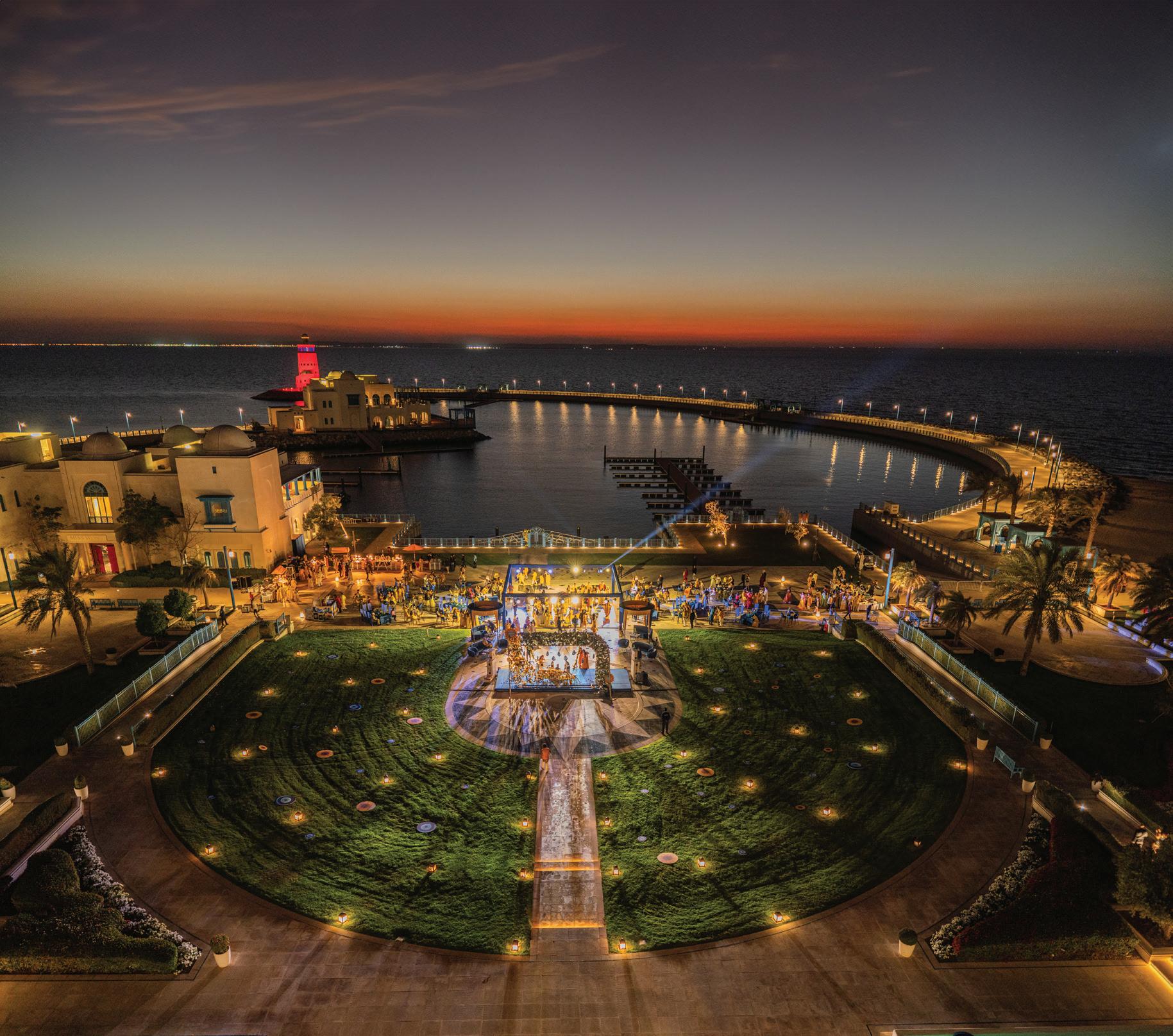

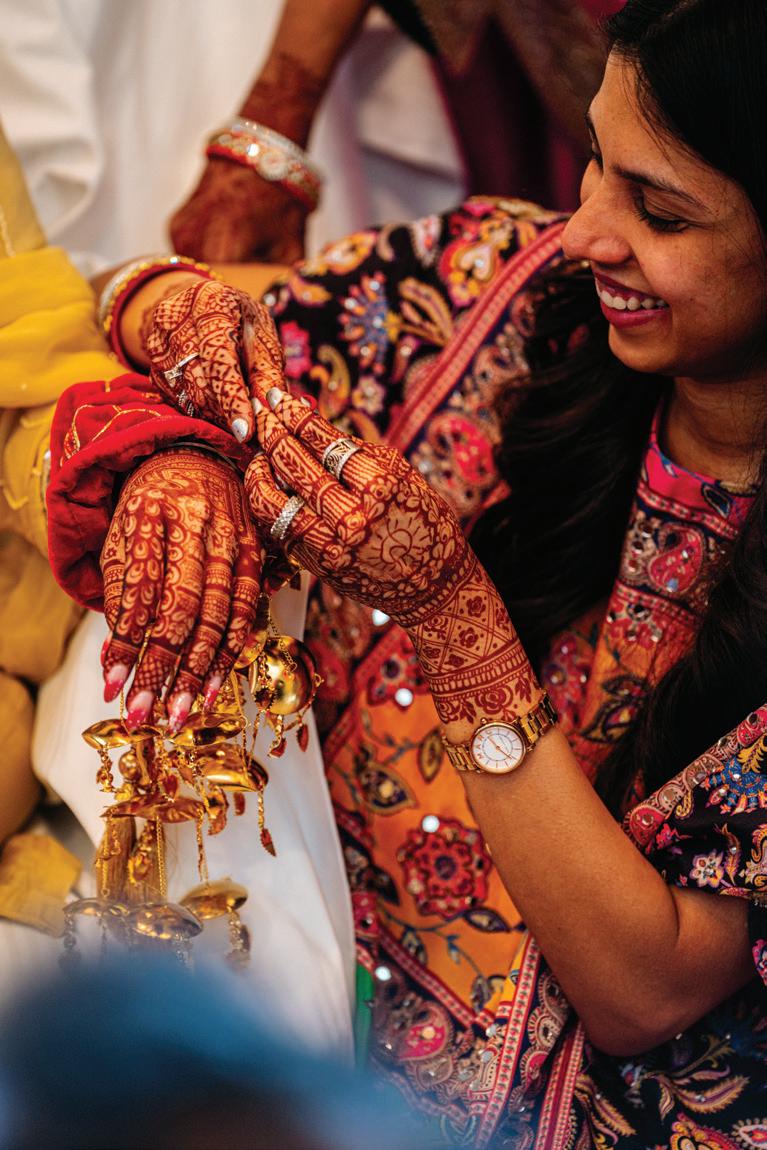
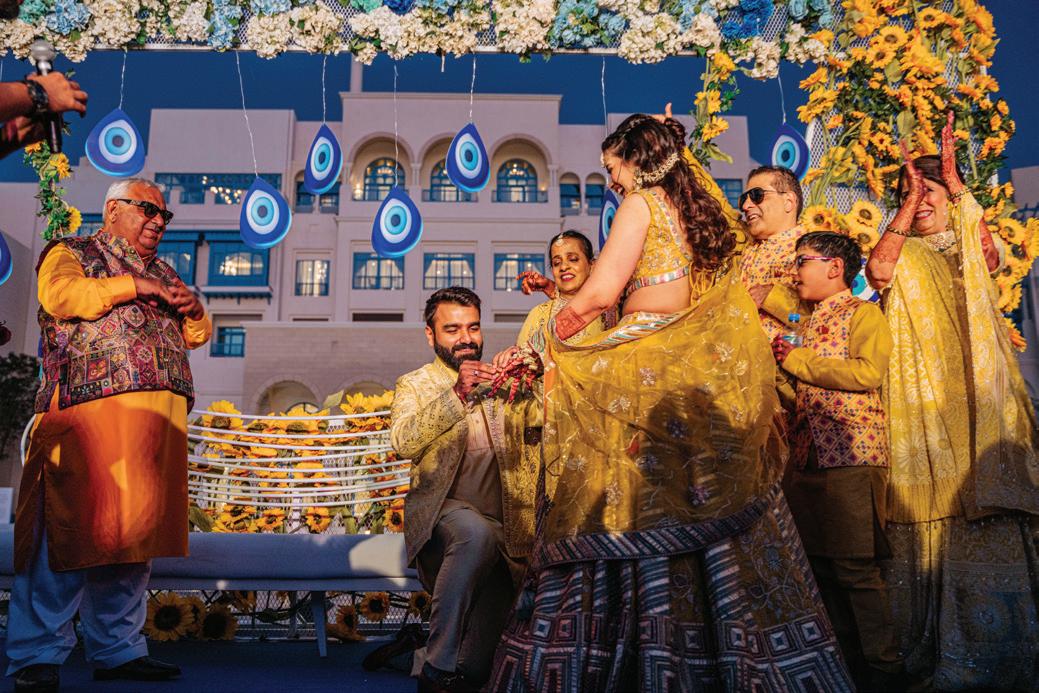
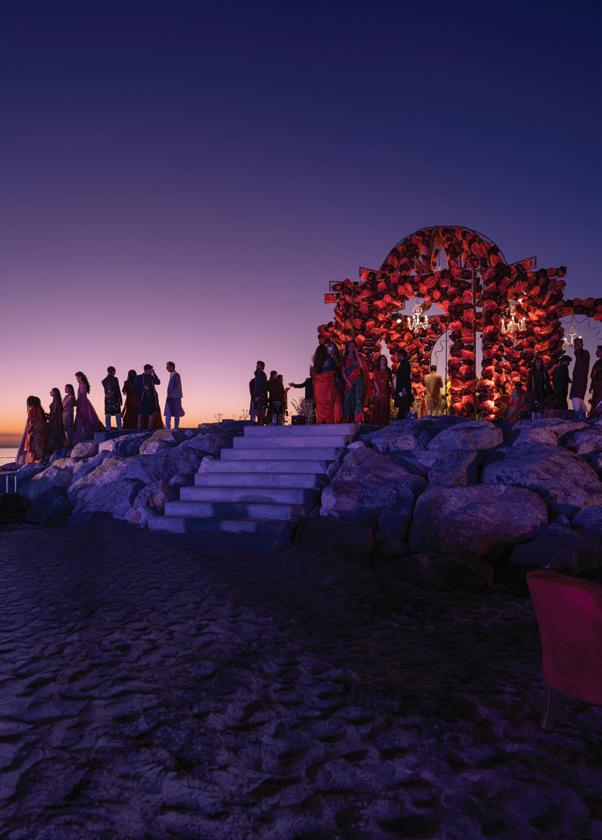
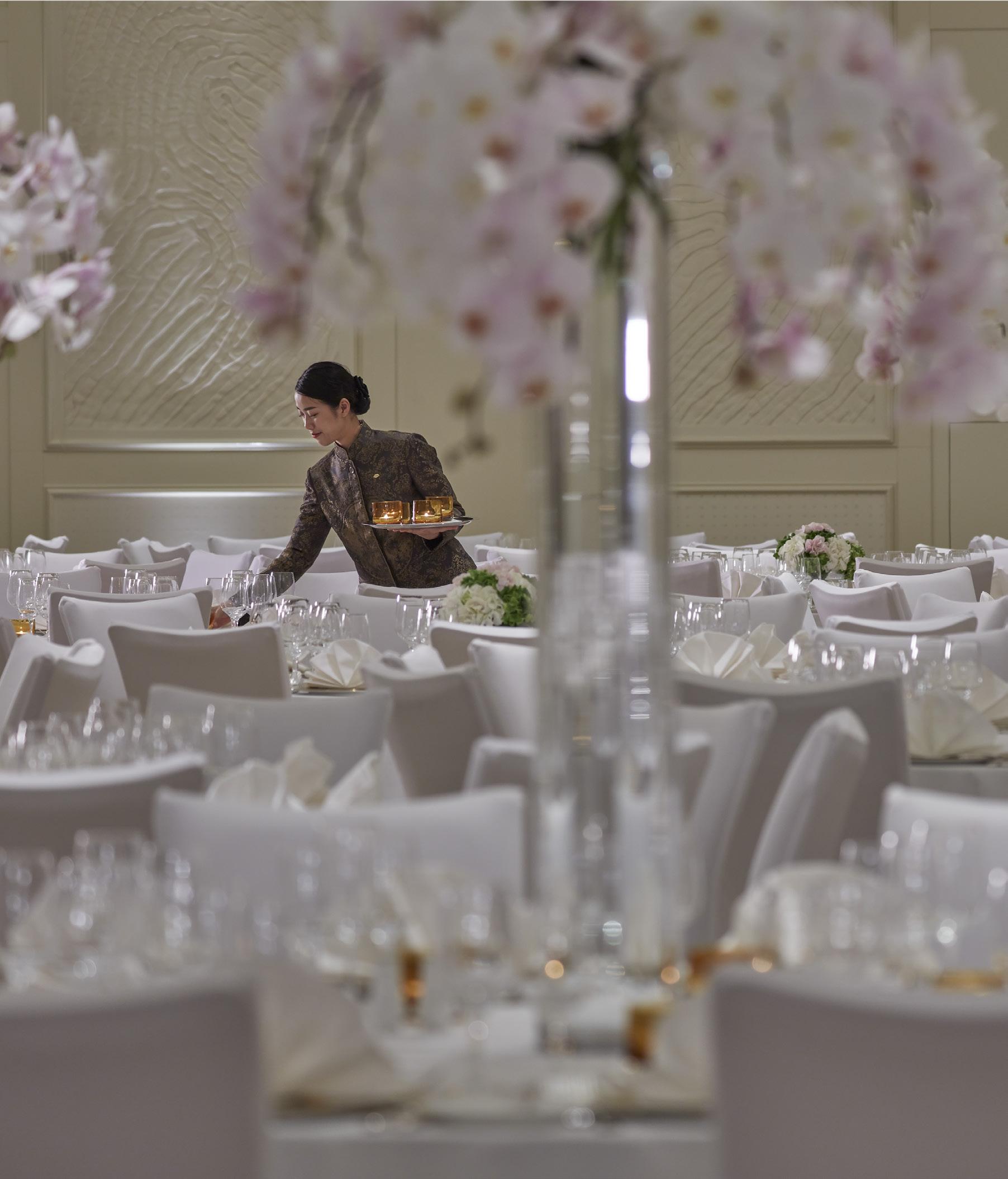
When you plan a meeting or event at Mandarin Oriental, Doha, you can expect exemplary service, state-of-the-art technology and a truly unforgettable setting.

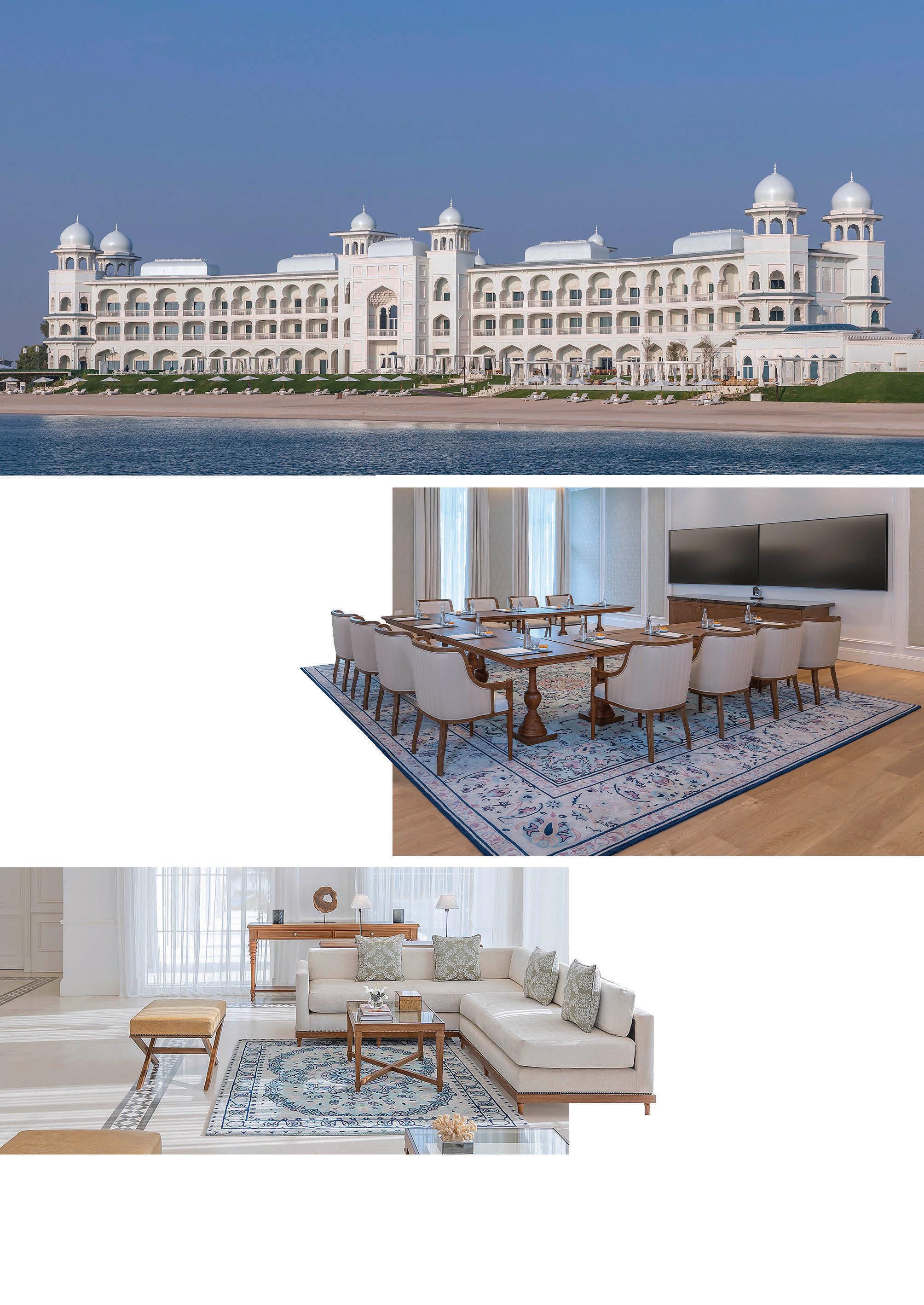
Whether you seek luxurious indoor comforts or a private beach along the Arabian Sea, we o er an array of the most elegant private spaces for intimate gatherings to grand celebrations.
Crafting unforgettable moments.
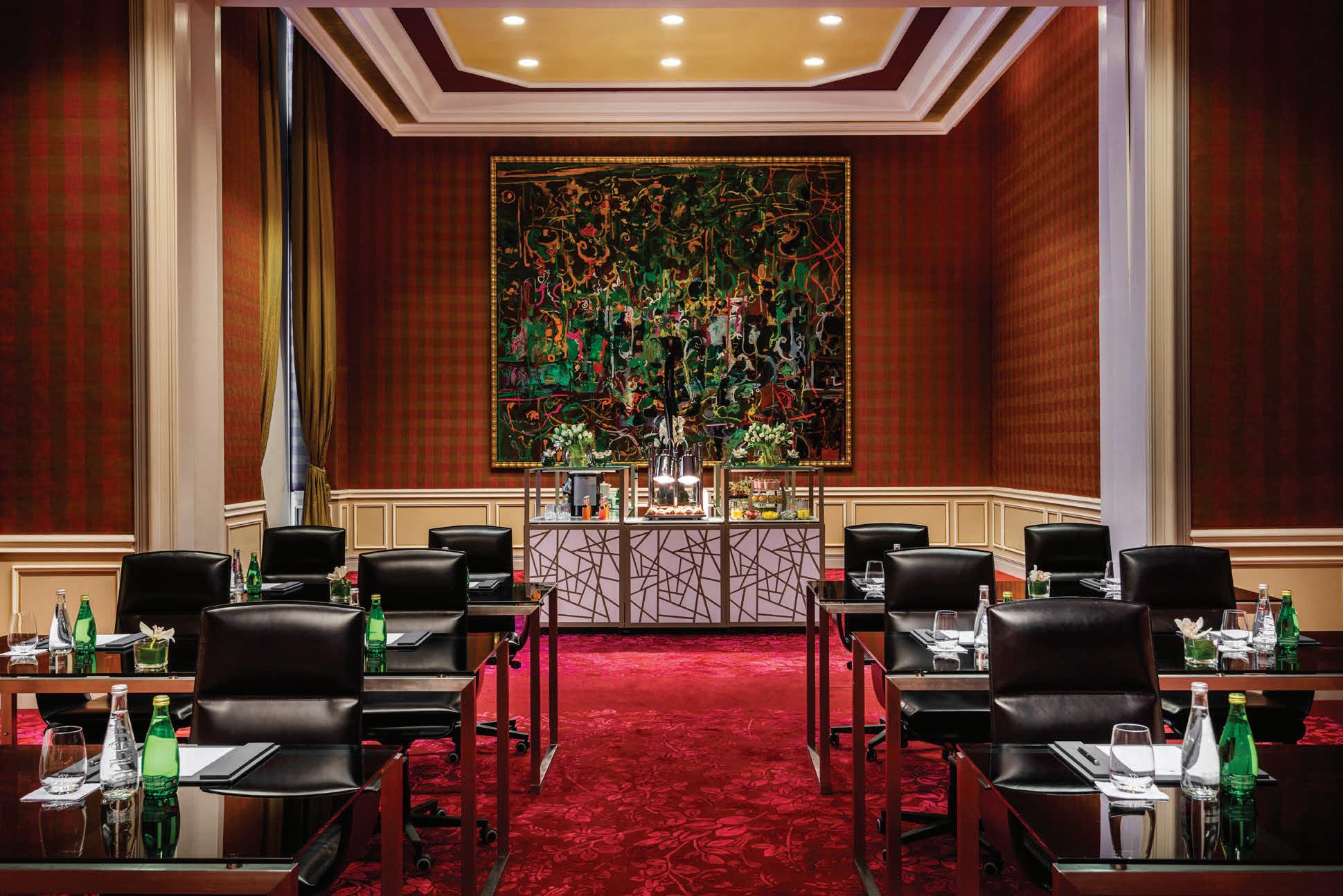
Elevate your important events in Doha, Qatar by choosing a luxury business hotel that is solely dedicated to your success and where even the smallest detail receives our undivided attention. From exclusive board meetings, to product launches or corporate-wide celebrations, The Ritz-Carlton, Doha ensures every meeting is thoughtfully planned and delightfully memorable.
For reservations, visit www.ritzcarlton.com/doha or call +974 4484 8000.
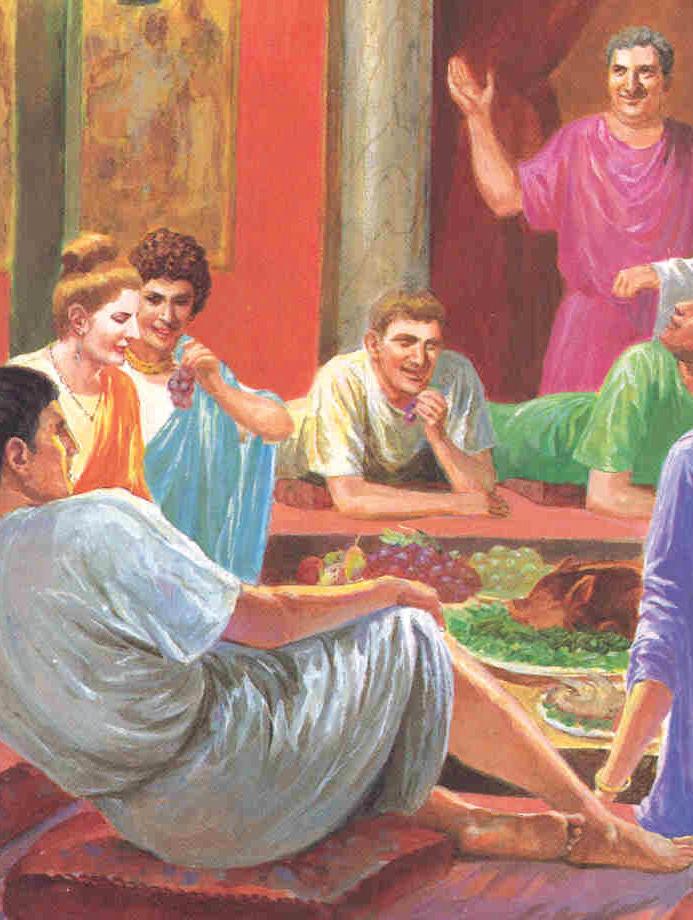
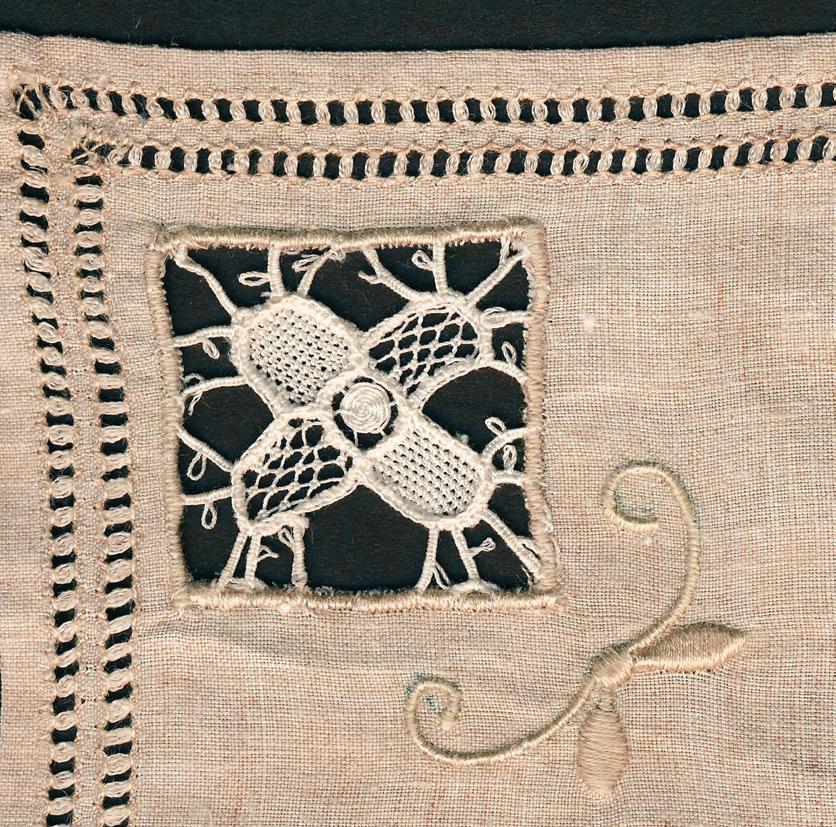
Dining at a special event is always a feast for the eye as well as the palate. Glasses and silverware shine, floral arrangements are spectacular and what is now a rather rare item for daily dining, the table napkin, can be found in many graceful shapes adorning the overall setting.
It is fortunate that your host is not an ancient Spartan otherwise you would be wiping your hands on a piece of dough or bread instead of the finest linen: you have the Romans to thank for this innovation. A small handkerchief-sized napkin was provided by the host to wipe the brow in the warm climate, but guests took their own mappa, a larger piece of fabric spread over their clothes on the edge of the couch as they reclined to dine. It was also used to blot the lips and had the added function of being an early ‘doggy bag’ as guests took favourite left-overs home within its folds.
After an absence of several hundred years, the Middle Ages saw a return to the table napkin in Europe. The city of Rheims, noted for its fine cloth, presented King Charles VII with a set at his coronation in 1422.
Napkins were either on the table or, accompanied with a finger bowl, offered to highly esteemed guests by a servant. The maitre d’hotel in charge of the feasts draped a napkin from his left shoulder as a symbol of office, while lesser servants folded a napkin over their left arms. Napkins in Europe are today placed on the right of the cover and in the US on the left.
The use of a napkin as an essential accompaniment for dining was widespread in the 16th century, and various sizes to suit different occasions were common. The serviette was a large napkin used at the table. By the 17th century the standard napkin was almost one metre by one and a quarter metres, its size reflecting the uncertainty of eating by hand.

The introduction of the fork at the courts of Europe changed the napkin’s fortunes again, as people endeavoured to eat as neatly as possible without it. However, the discovery that there was still ‘many a slip between the cup and the lip’ allowed napkins to regain their status, and towards the end of the century napkins were safely tied around men’s necks to protect their large ruffled collars. When shirts with lace fronts came into vogue, napkins were tucked into the neck or buttonhole.
Table-cloths and napkins became a common sight in the 18th century and table decoration continued to become more elaborate and coordinated until the First World War. Sizes were then reduced, and today a standard dinner napkin is between 56 and 70 cm square. Earlier table covers were made of linen and later the use of cotton and silk became popular. Napkins were often decorated with fine embroidery or drawn-thread work and as early as the Renaissance expensive materials such as damask were used.
The development of wash-proof chemical dyes in the latter half of the 19th century provided the perfect medium for a new form of decoration. Matching cloths and napkins in a whole range of new prints and colours quickly became popular and by the 1930s paper napkins were being produced in America. Printing and paper have allowed napkins and table-cloths to take on a life of their own, following the changes in fashion on a yearly basis. Cartoons, birthdays and sports have all made their mark, not to mention enormous advertising potential of this simple square of paper.
Folded napkins have long been admired and with shapes such as fans, water lilies, fleur de lis, peacocks and even ships, there is something to grace every occasion and every level of dexterity. From the finest linens and damasks to bright and bold paper, napkins add a touch of something special to any table as this most utilitarian commodity is magically transformed into a work of art.
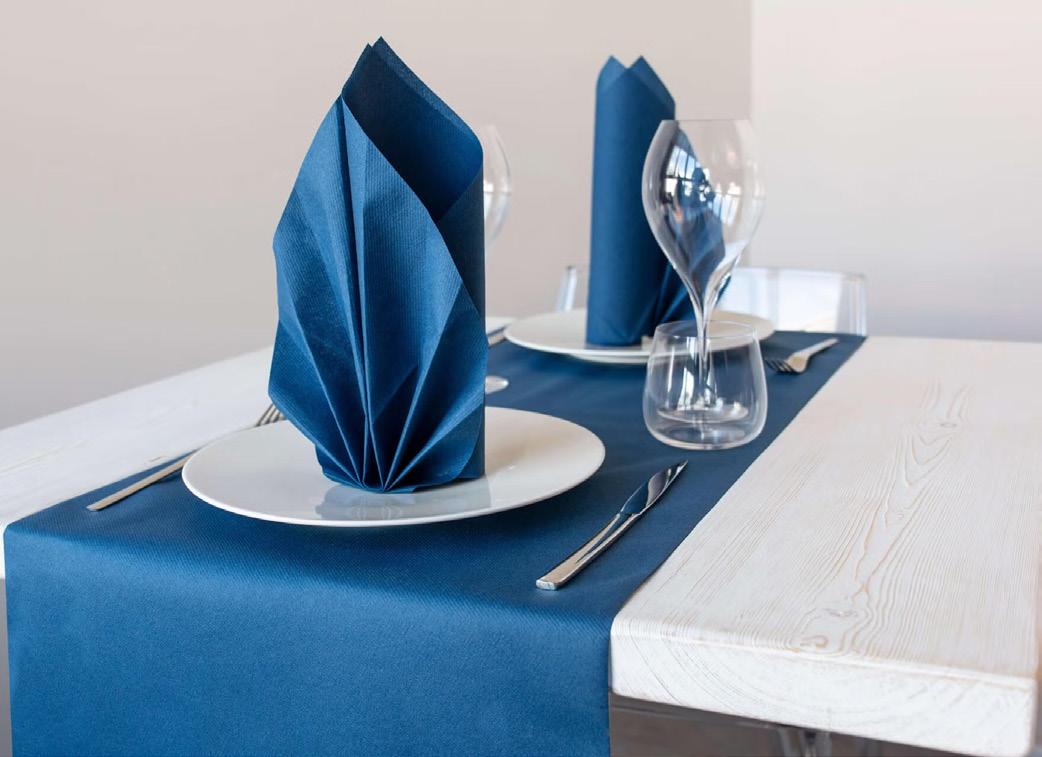
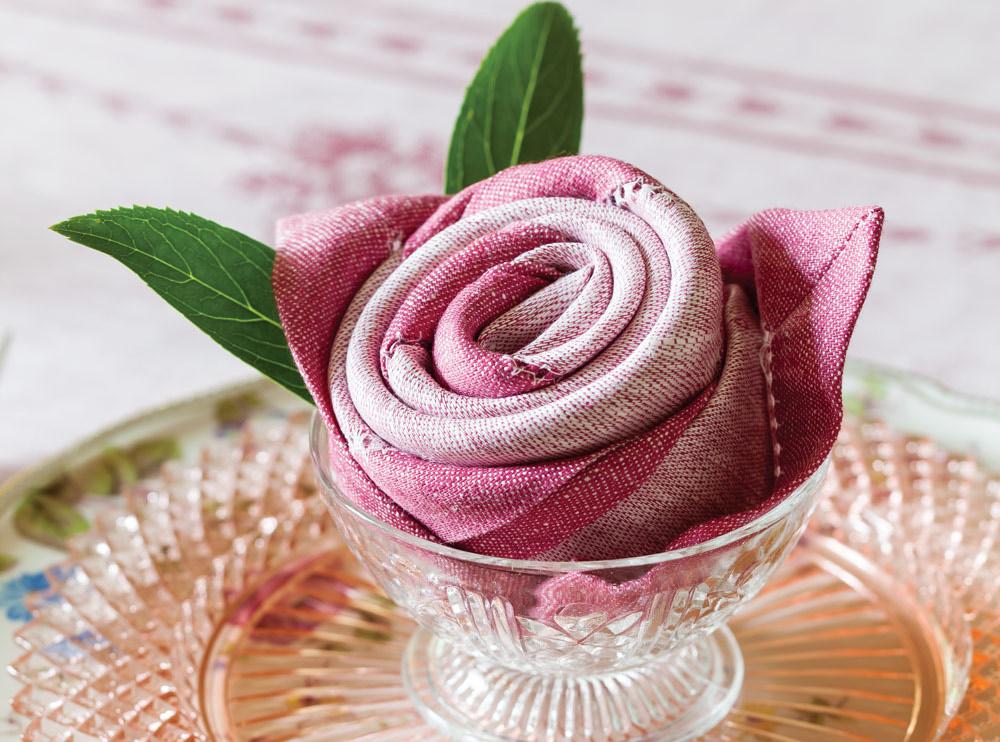
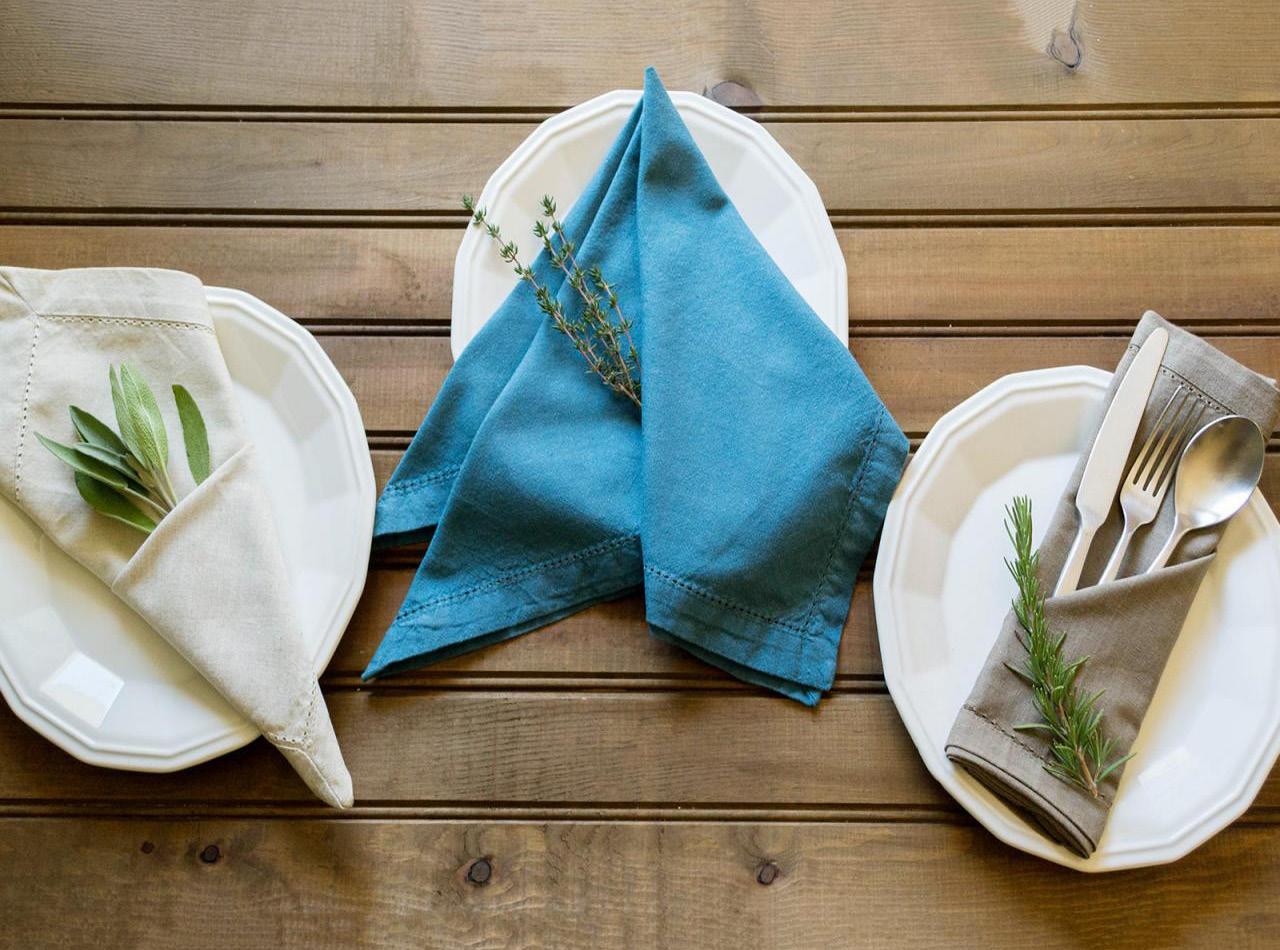
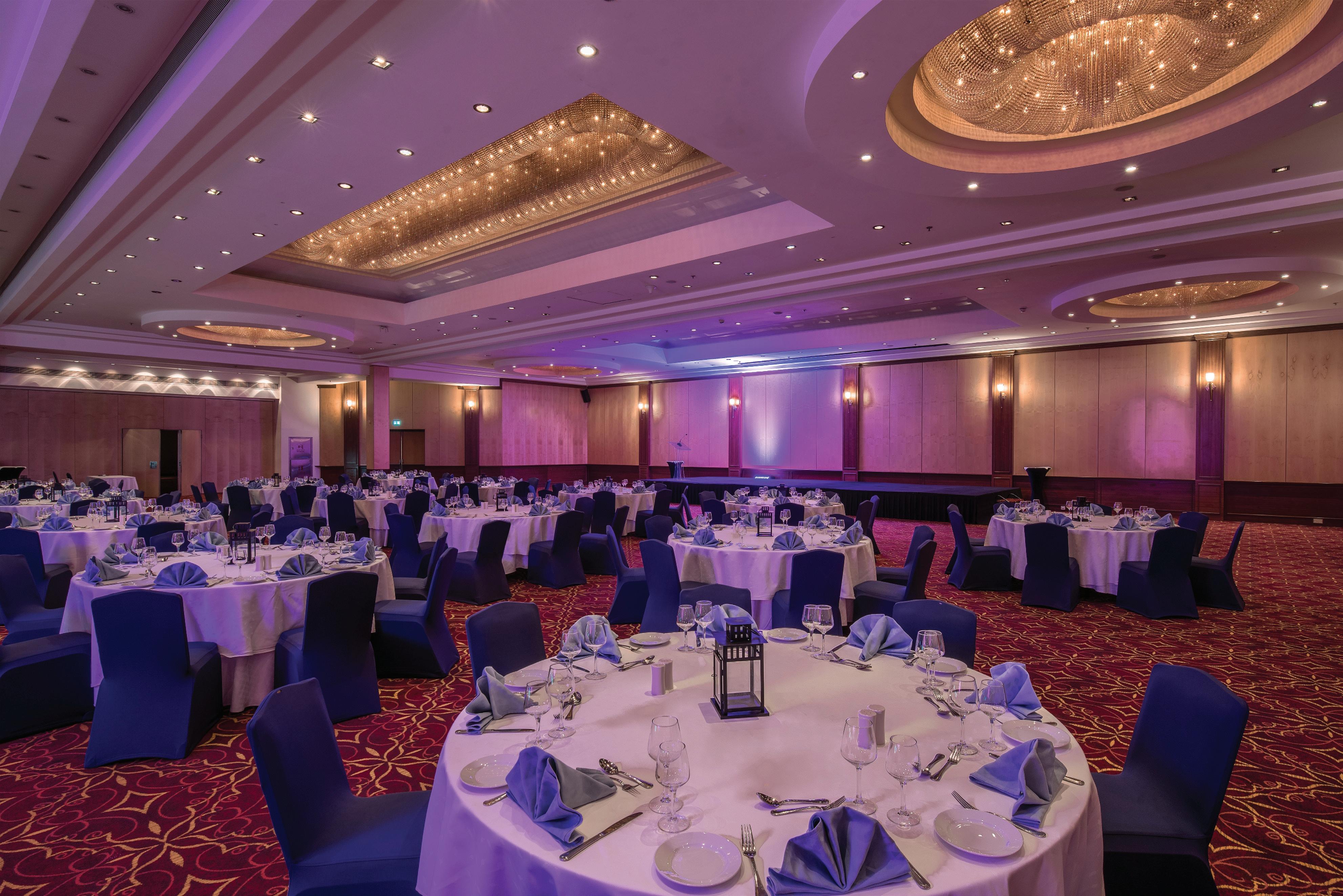
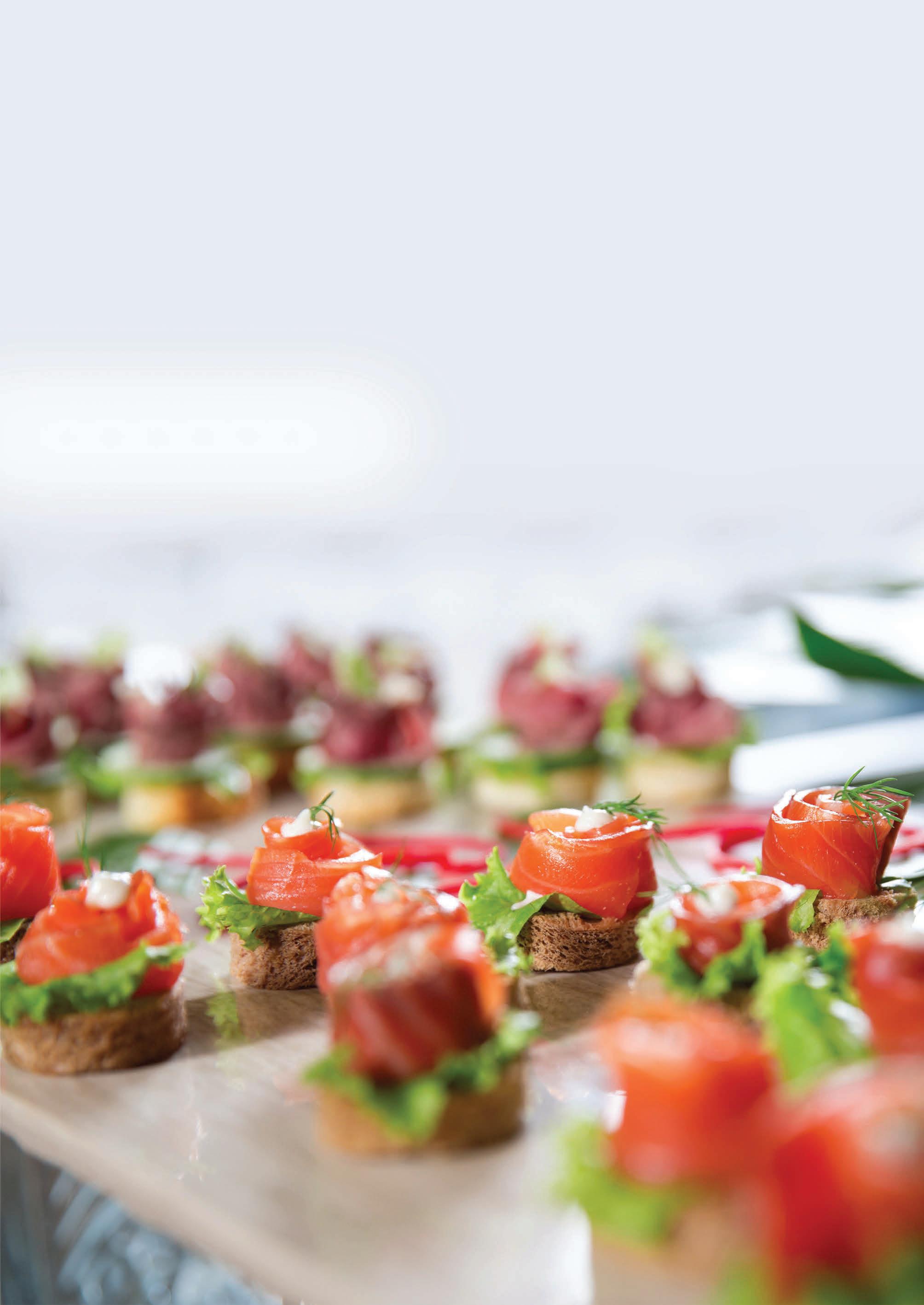
Tailor-made catering at your chosen location, from corporate gatherings to weddings and private events.
For inquiries call 3158 7931
